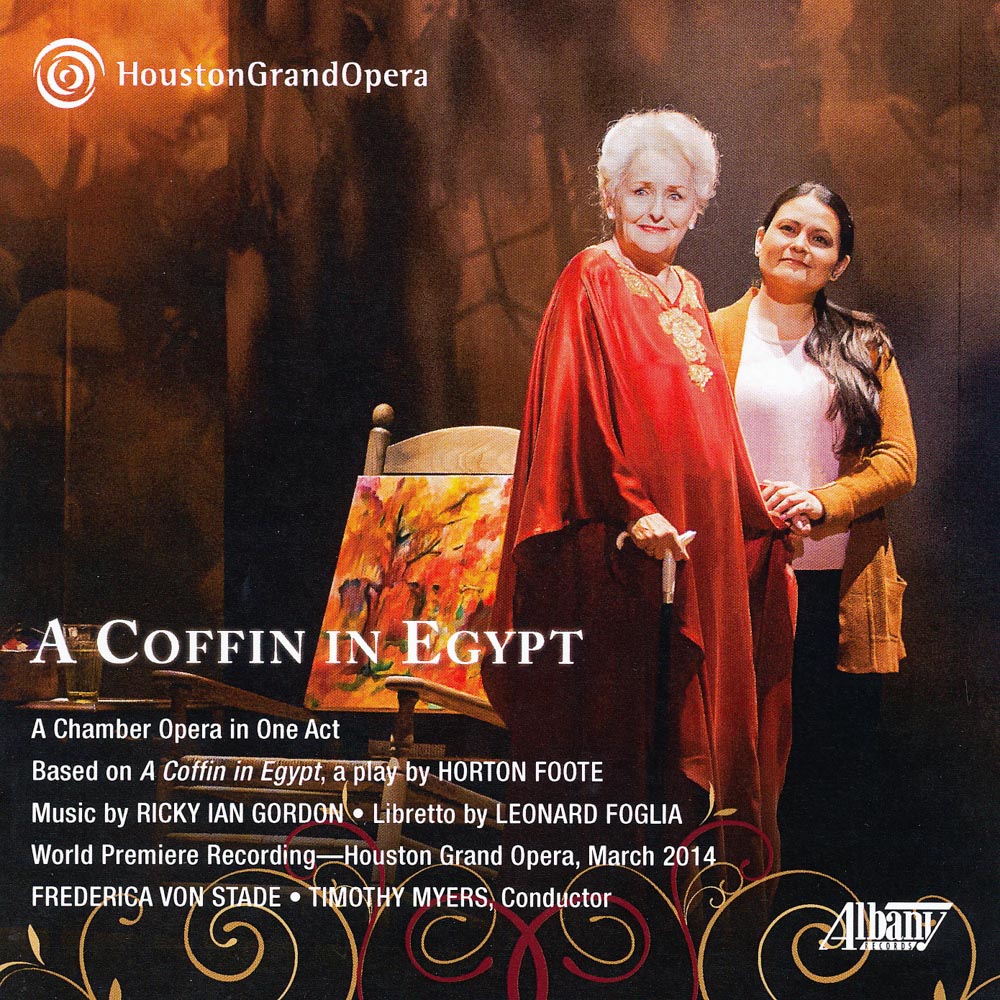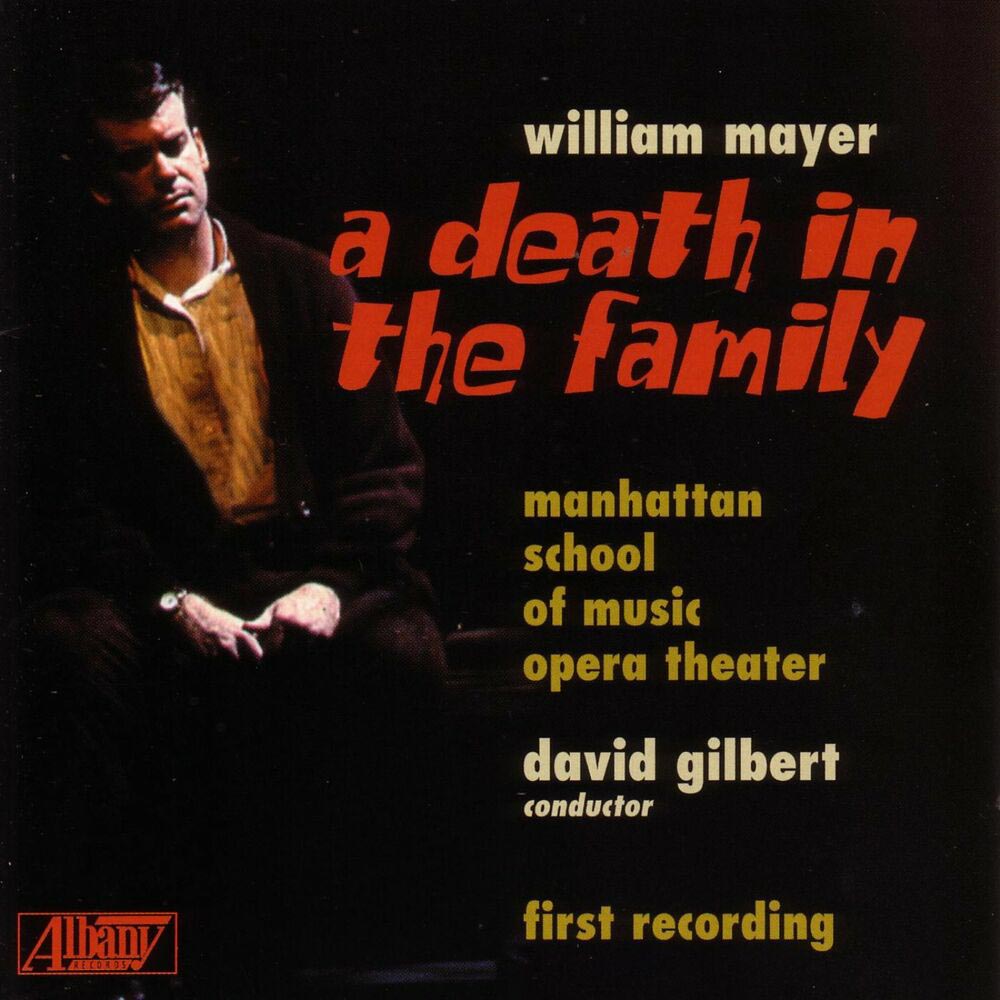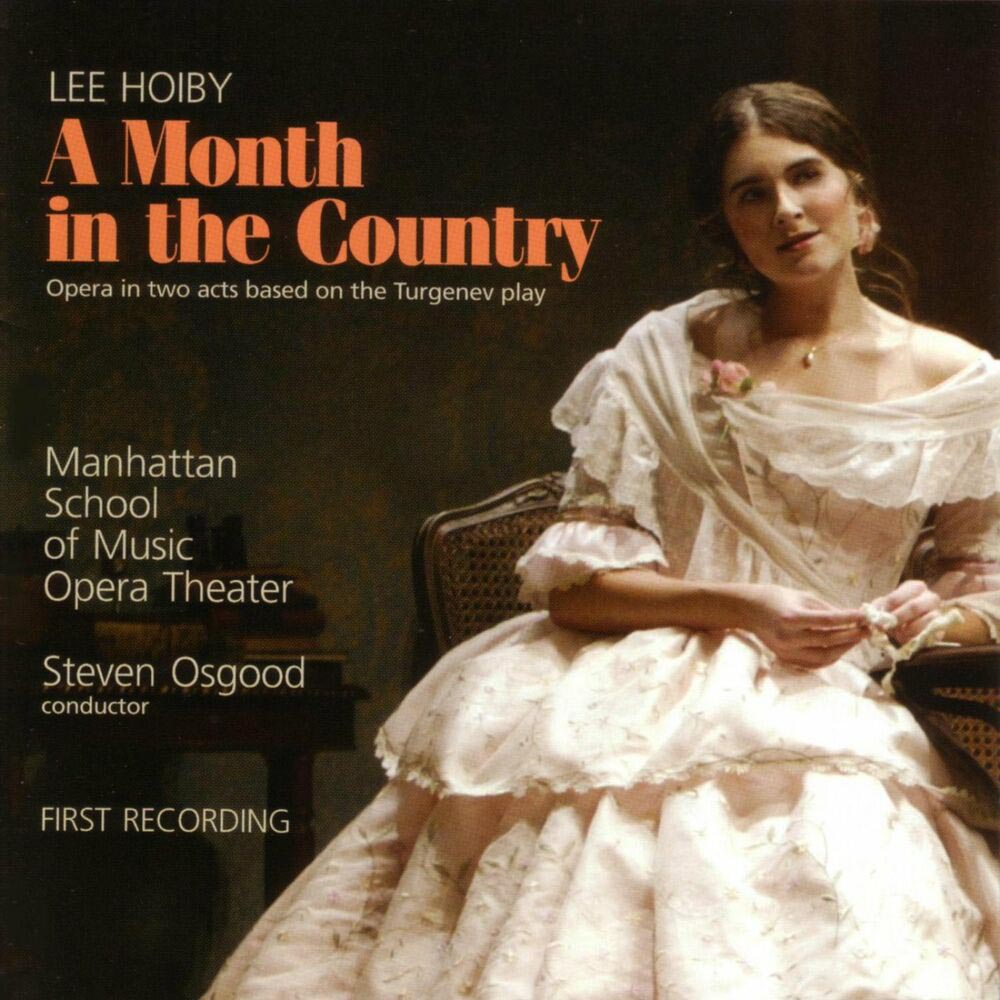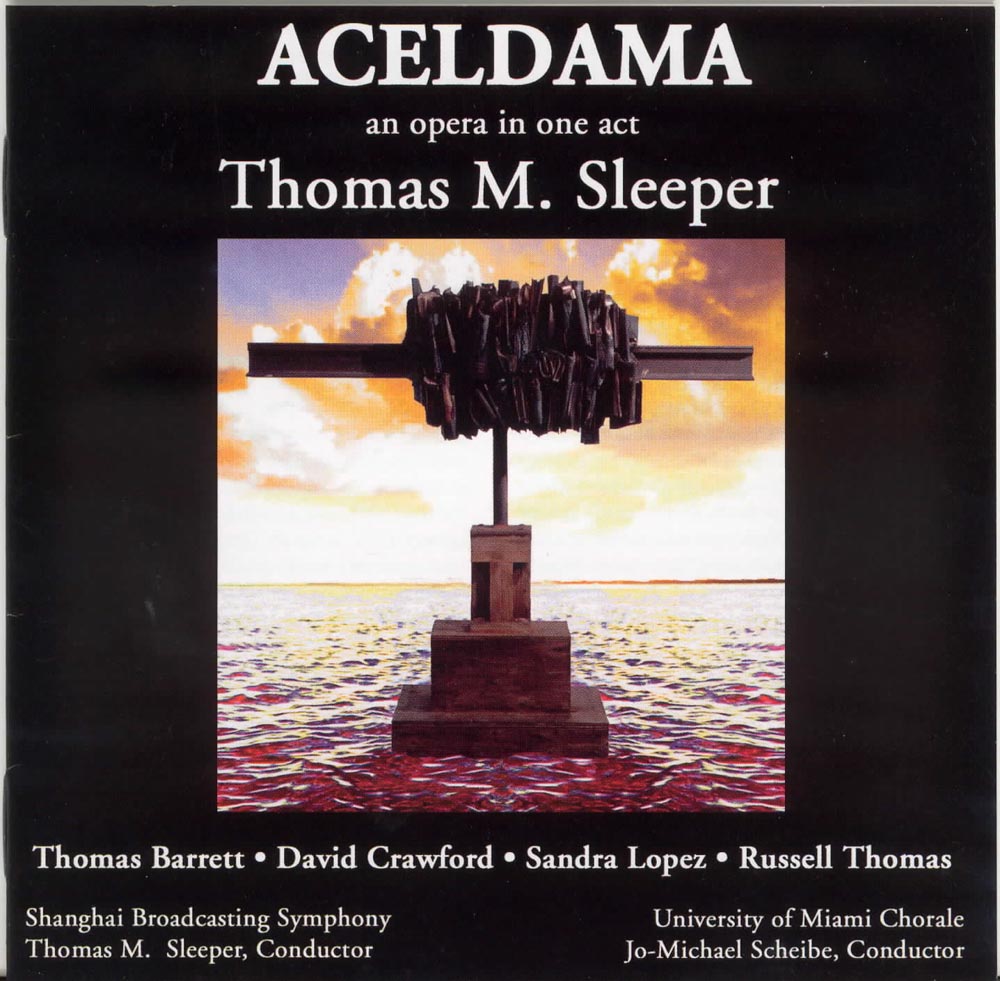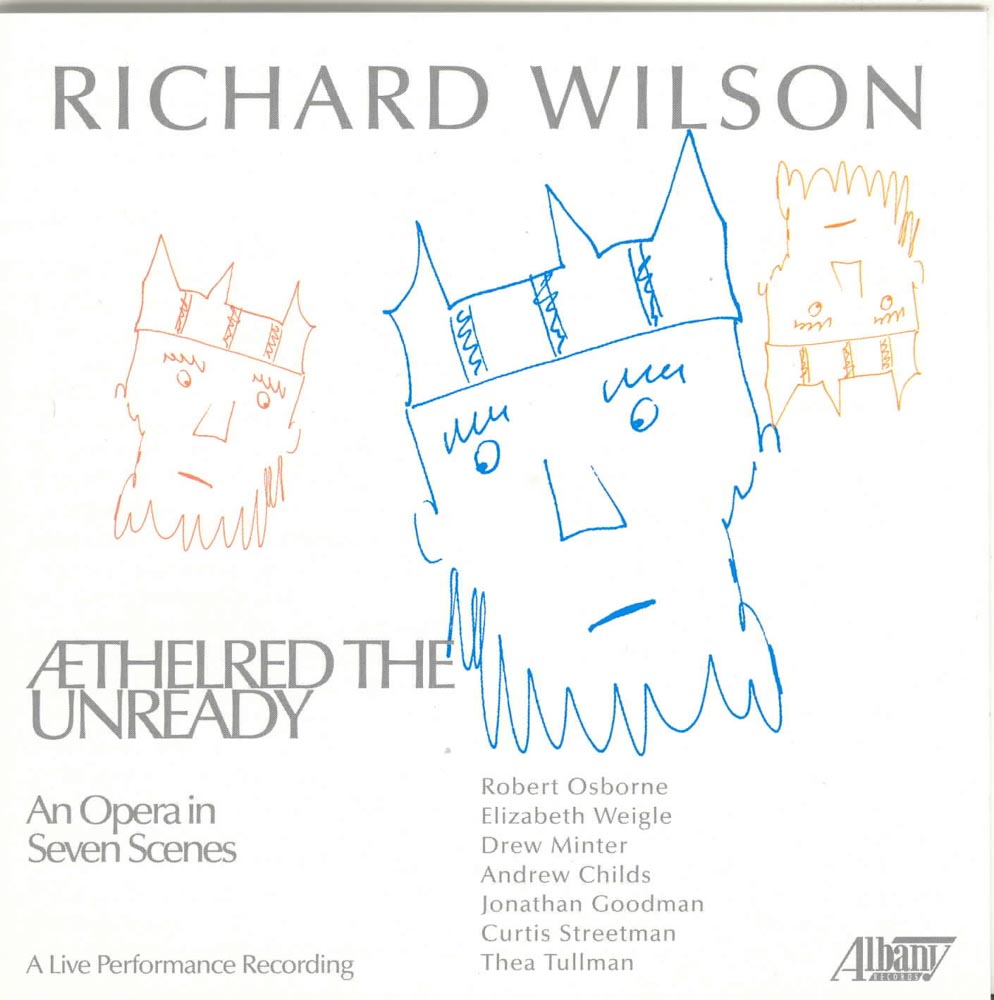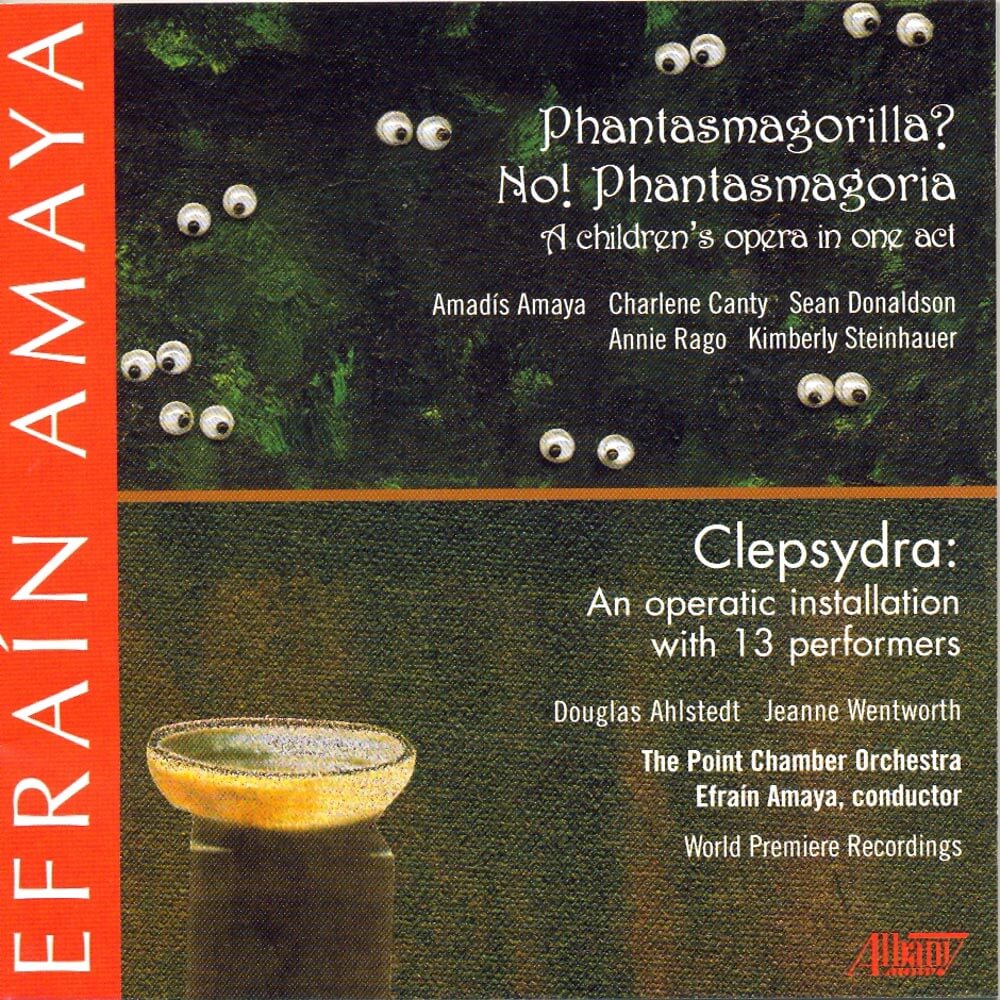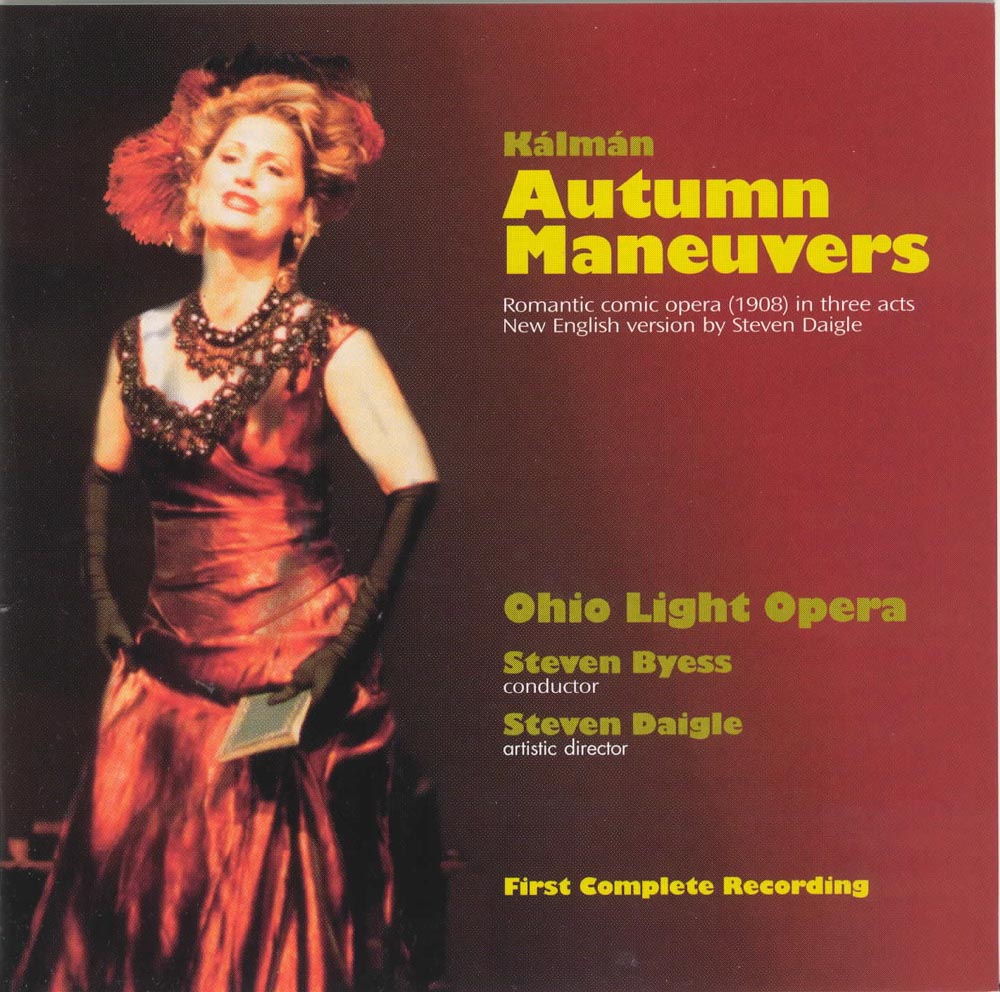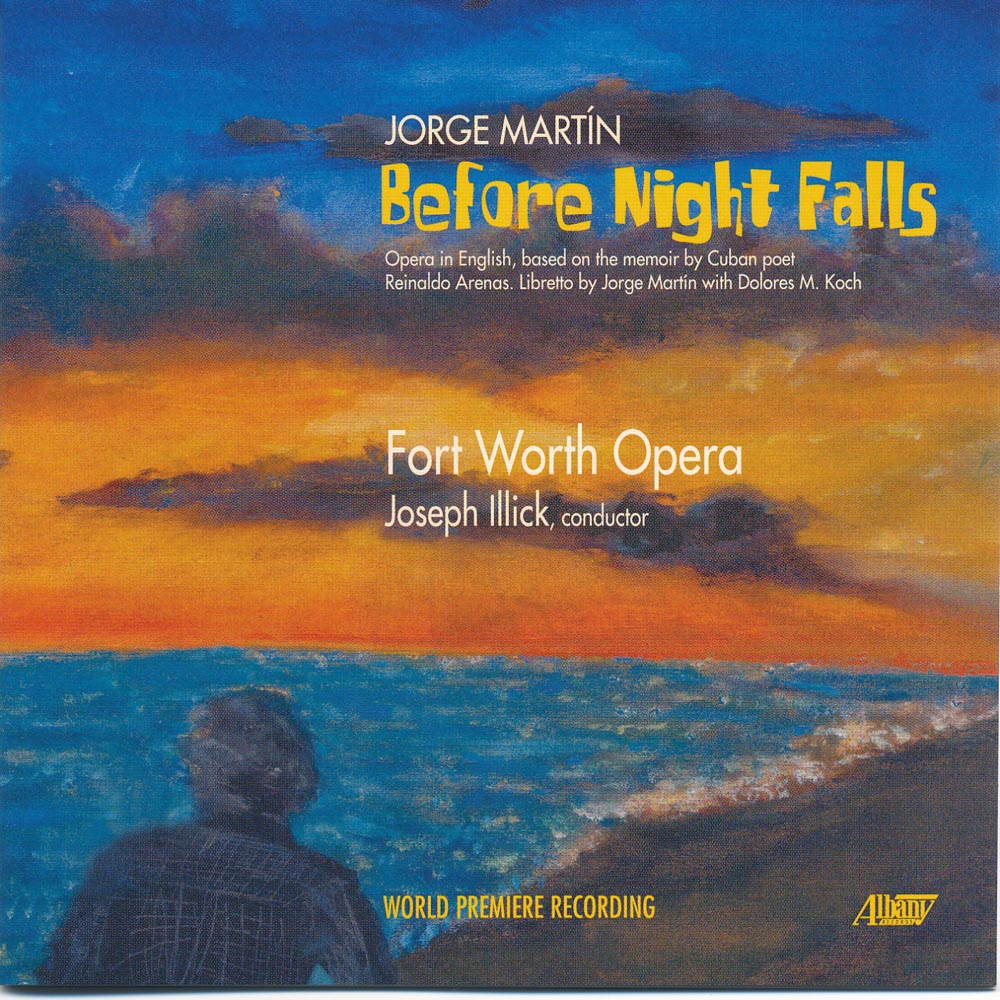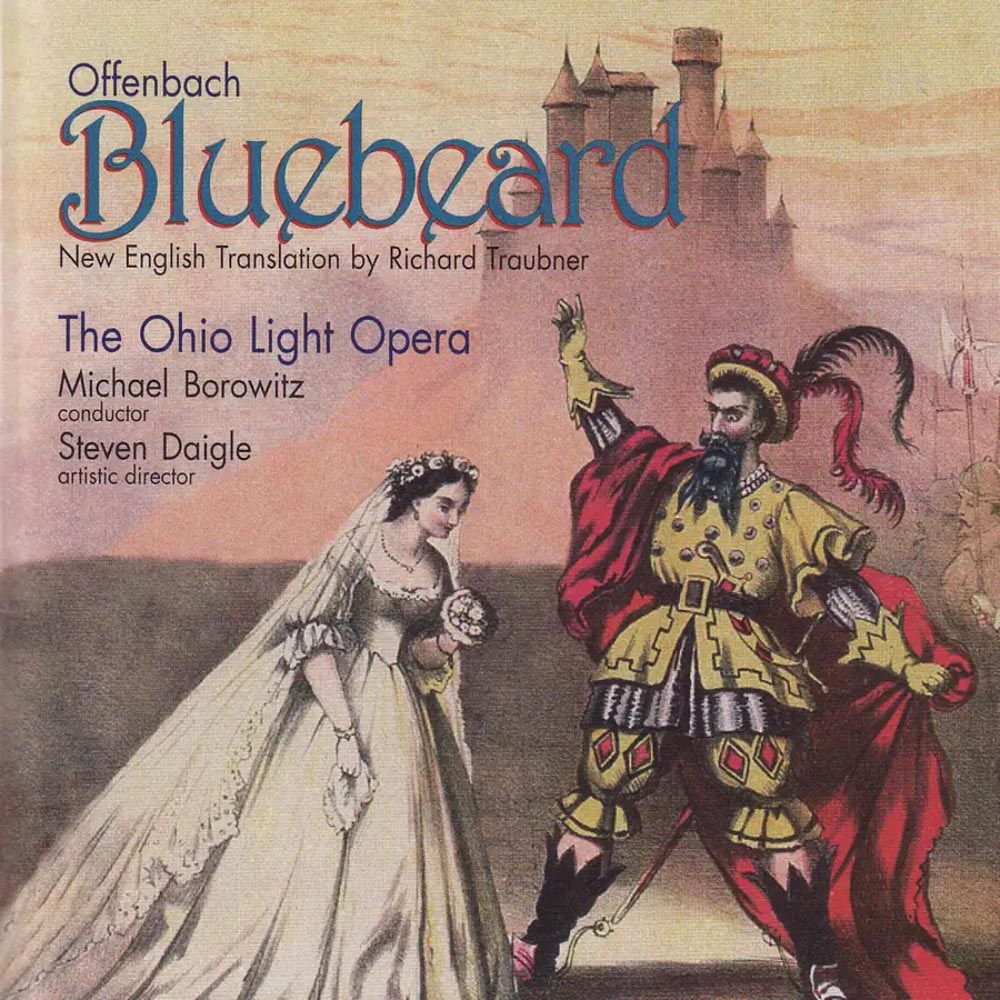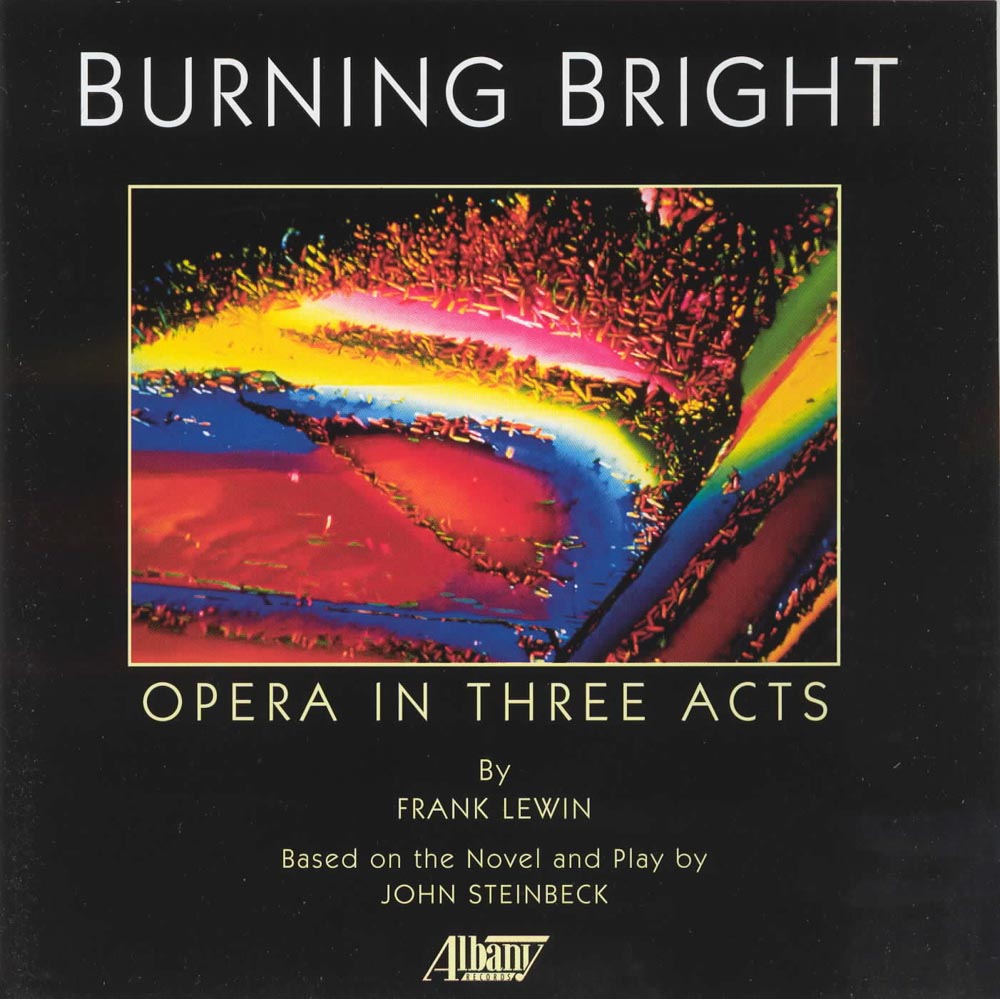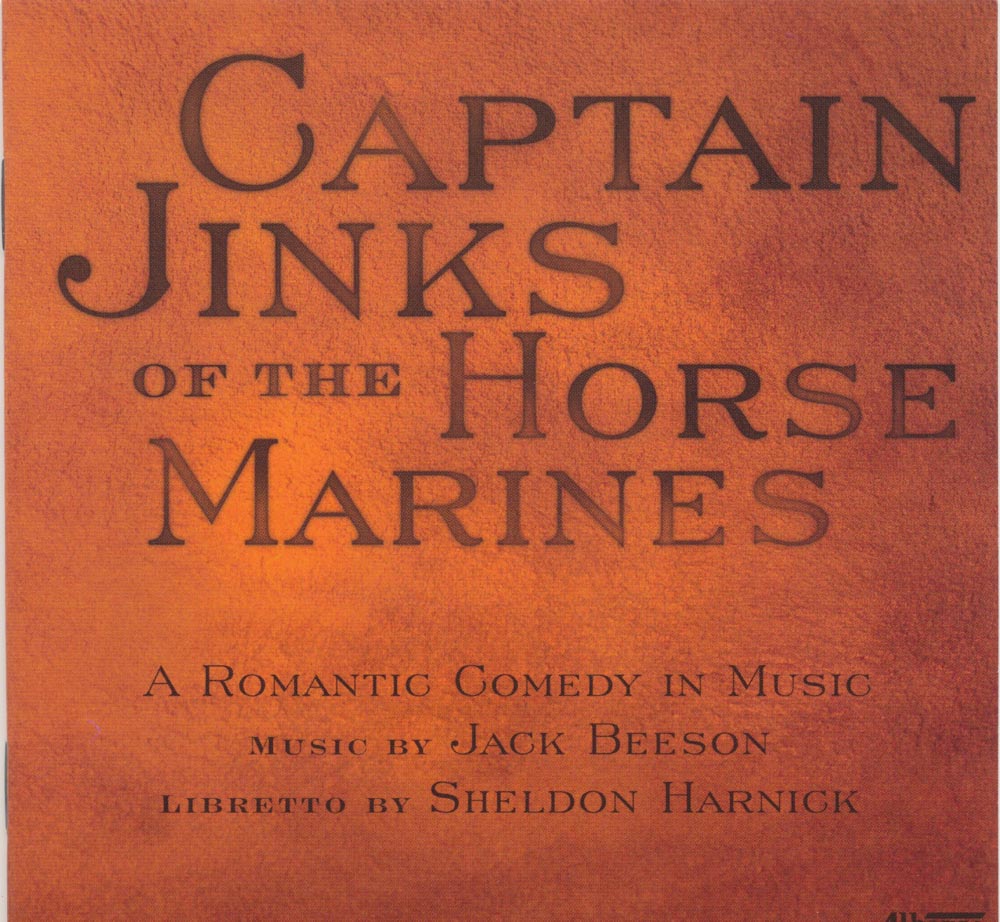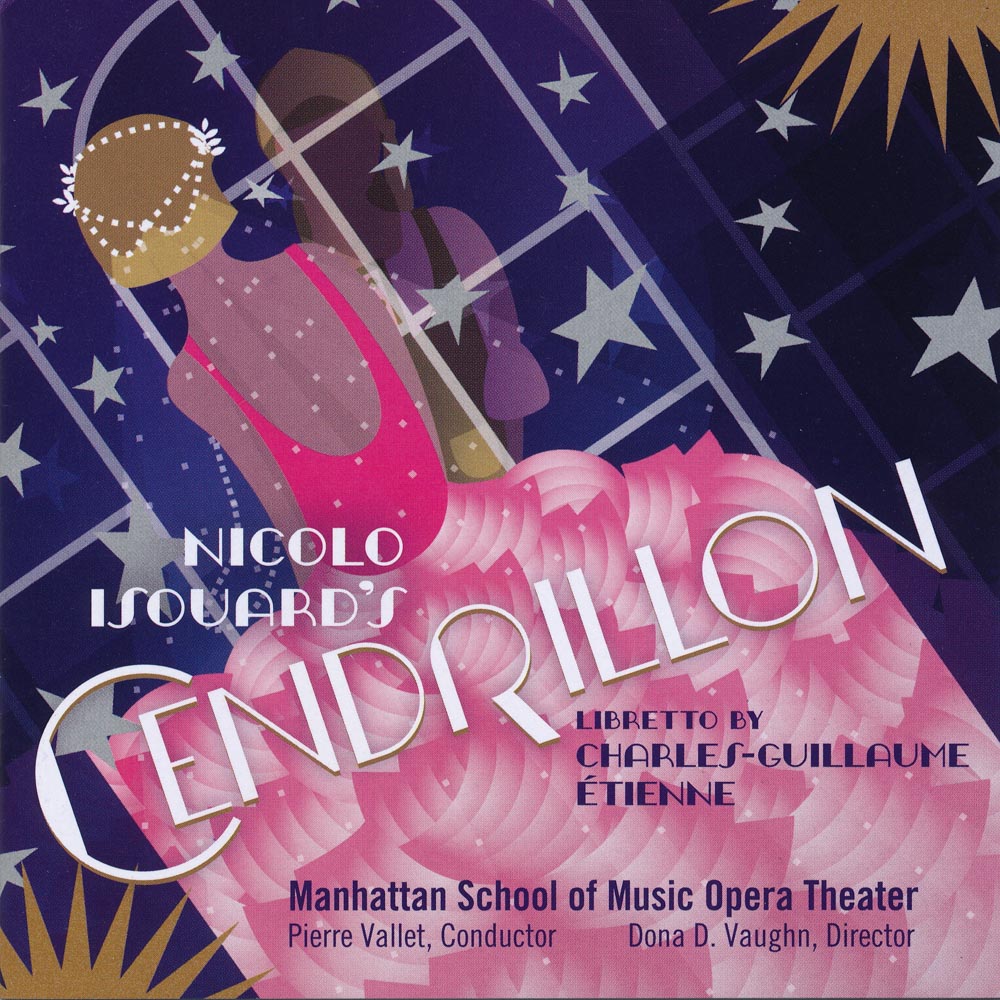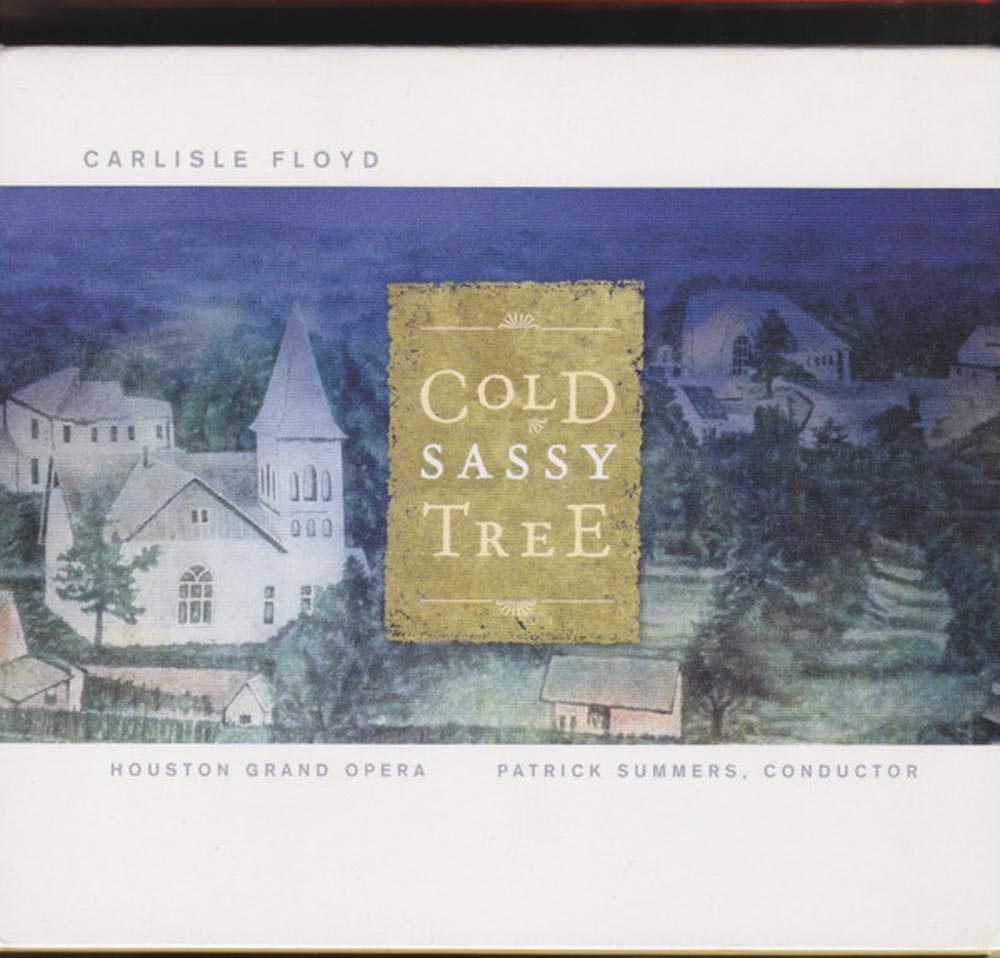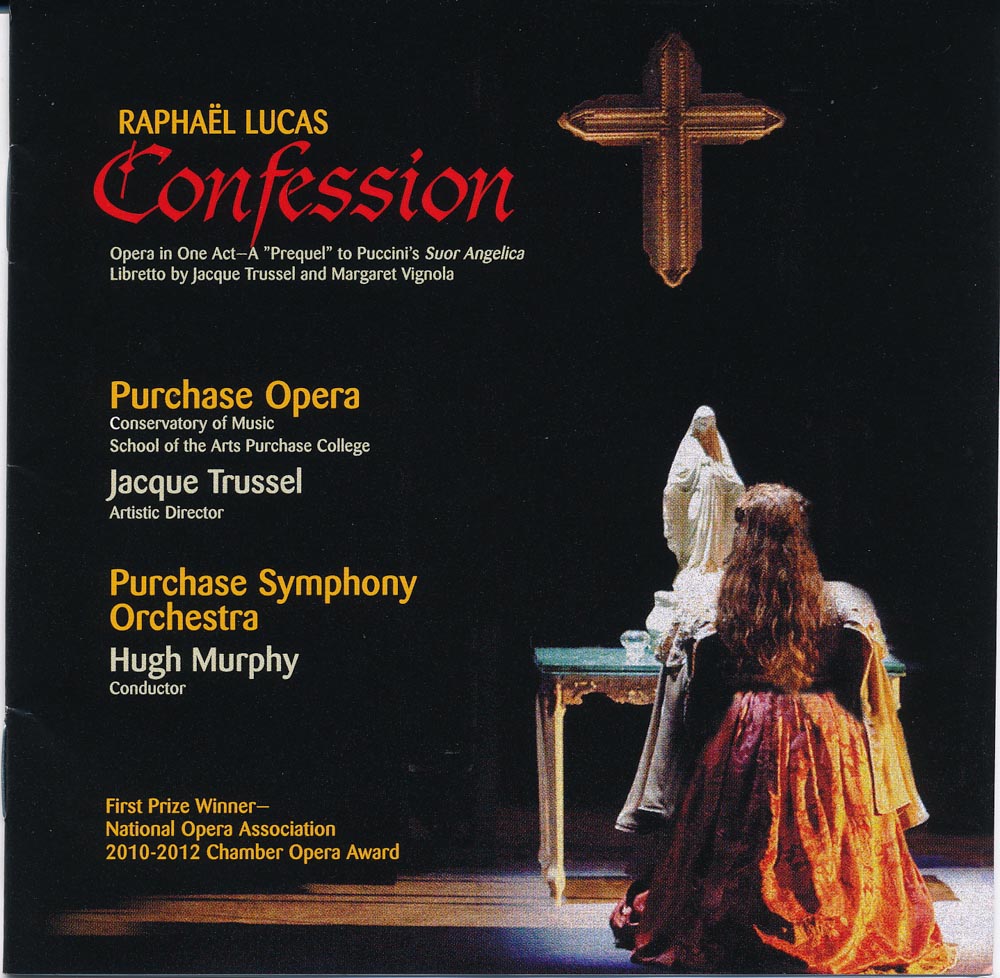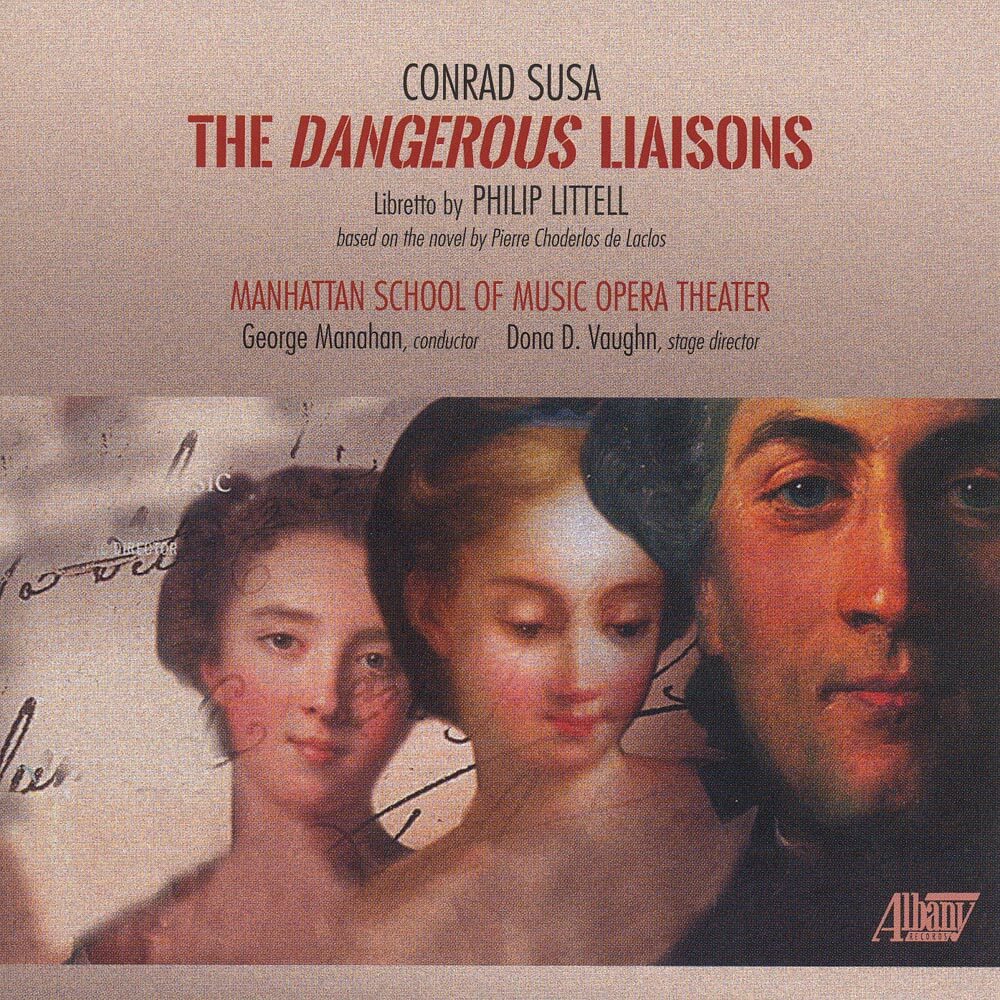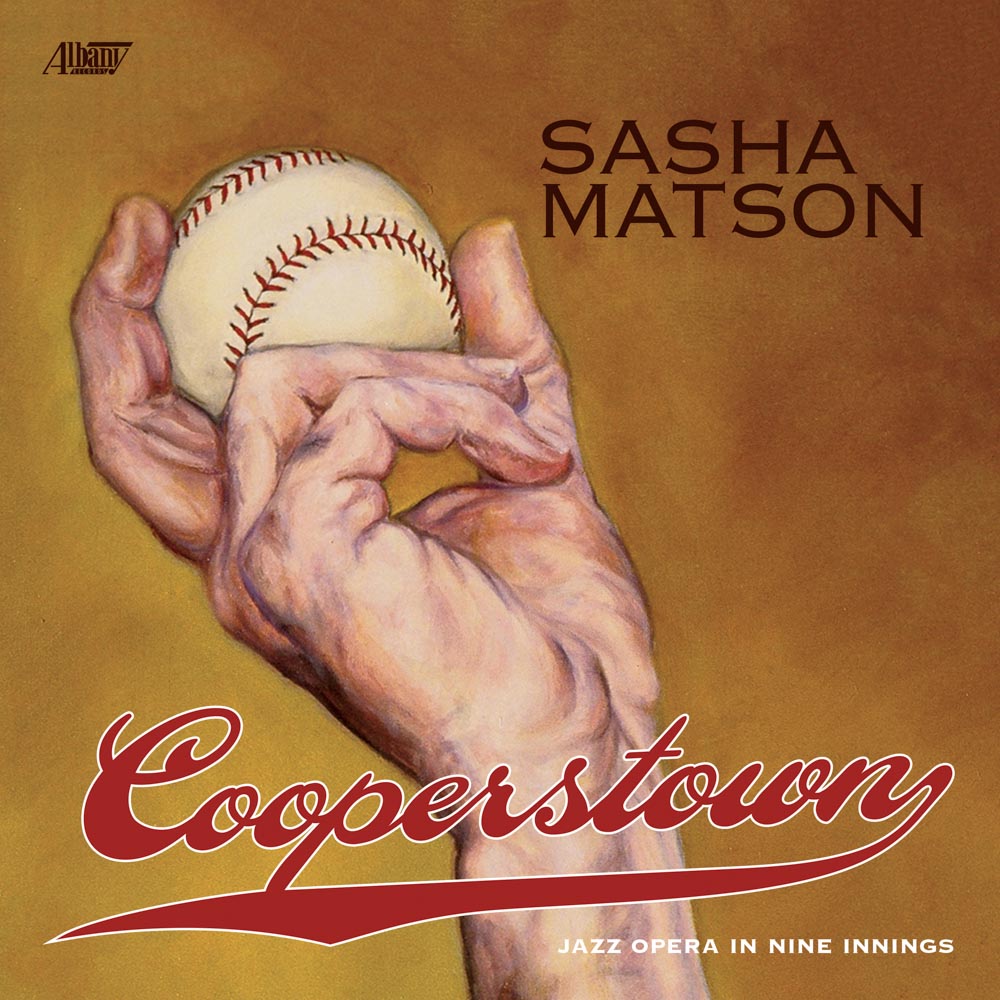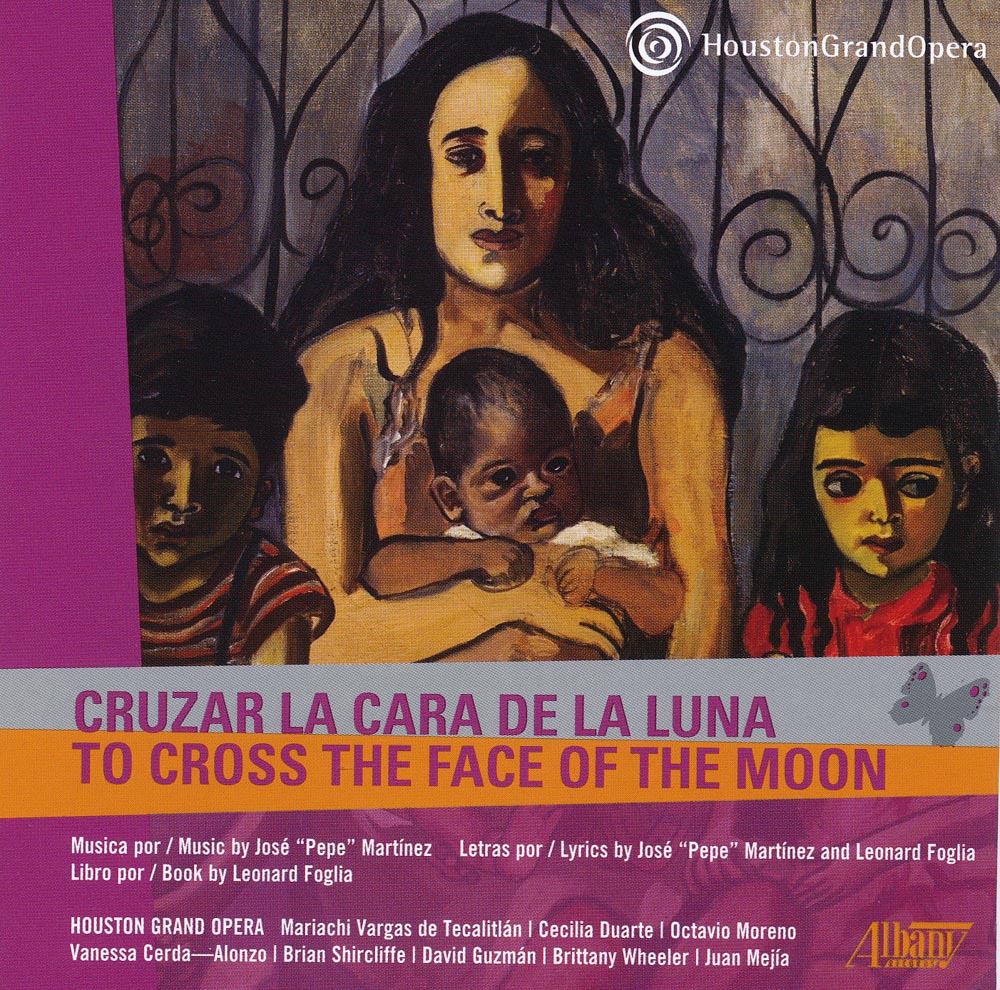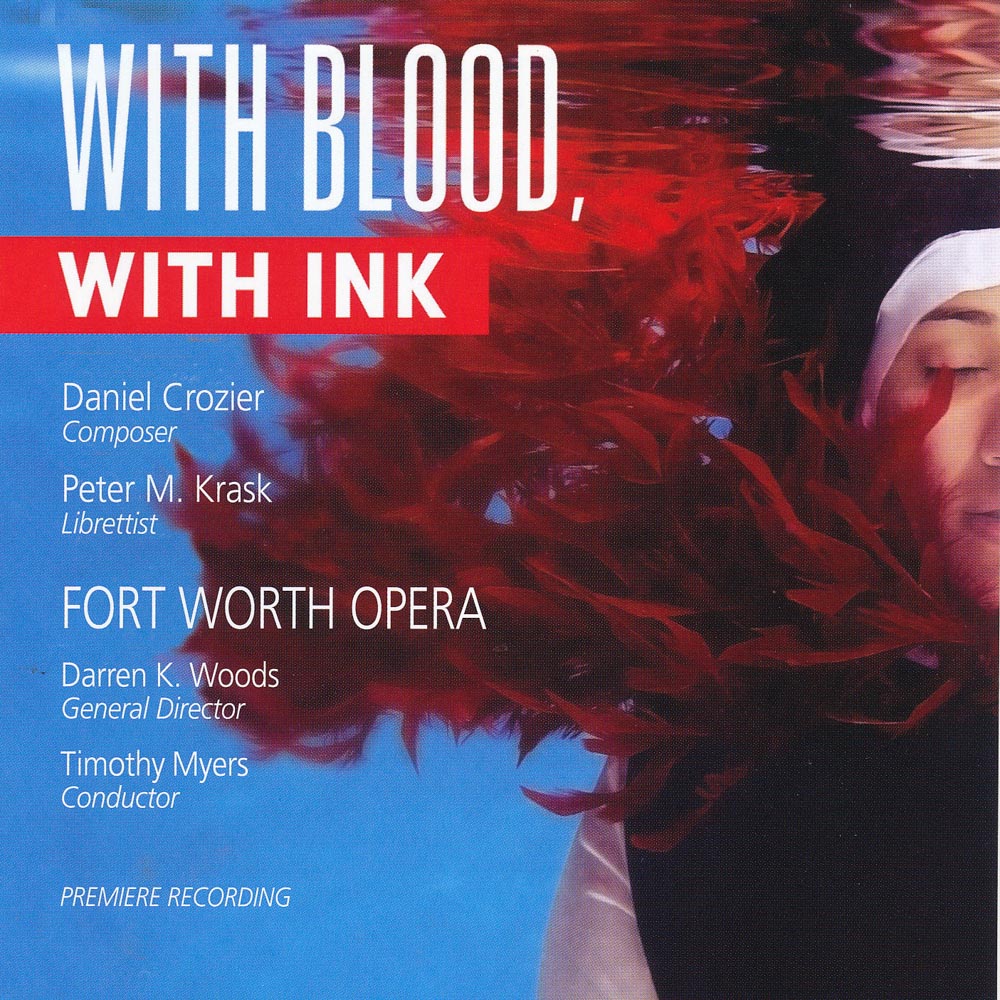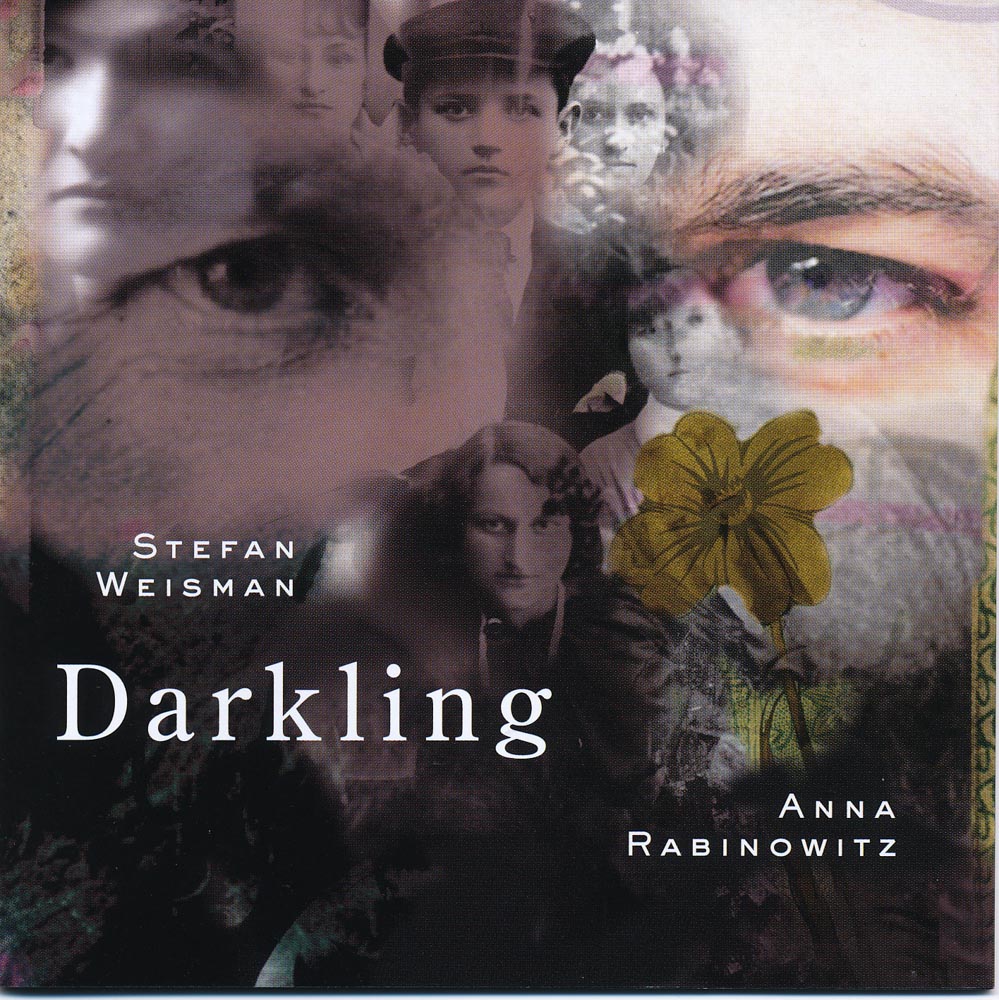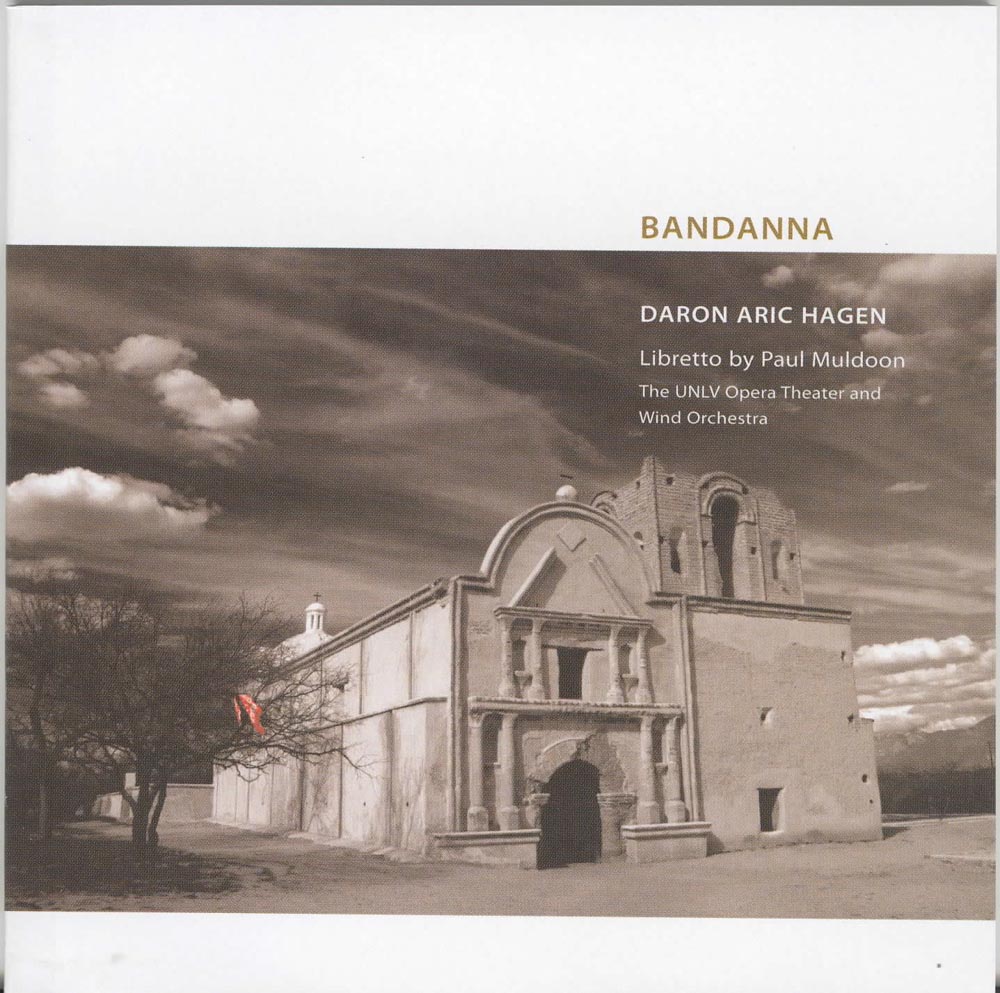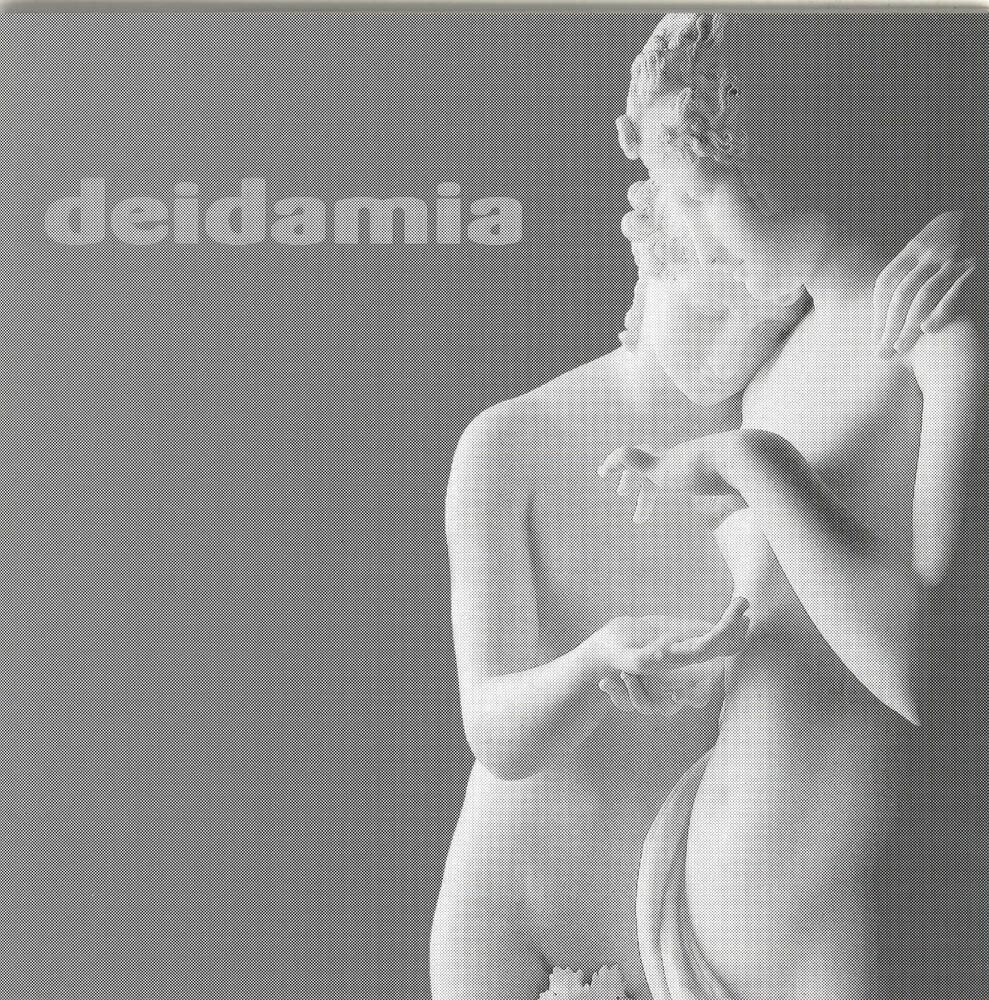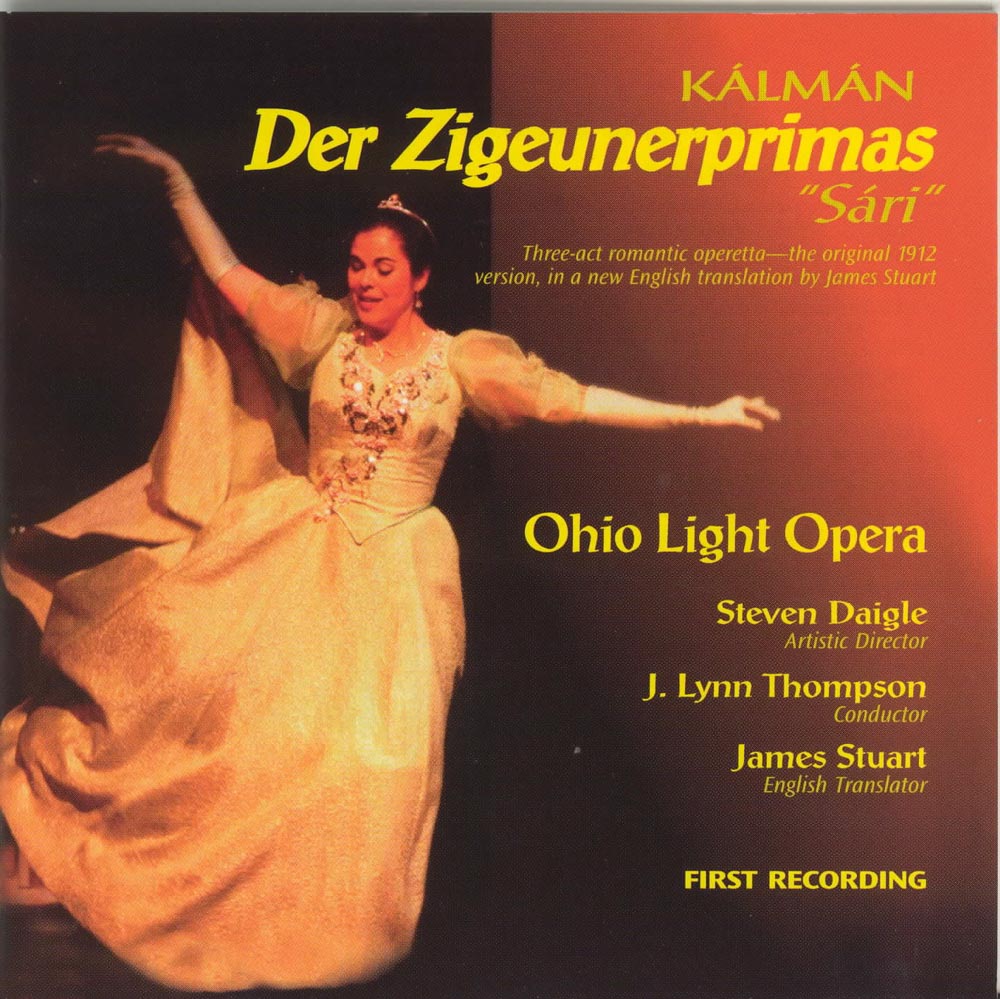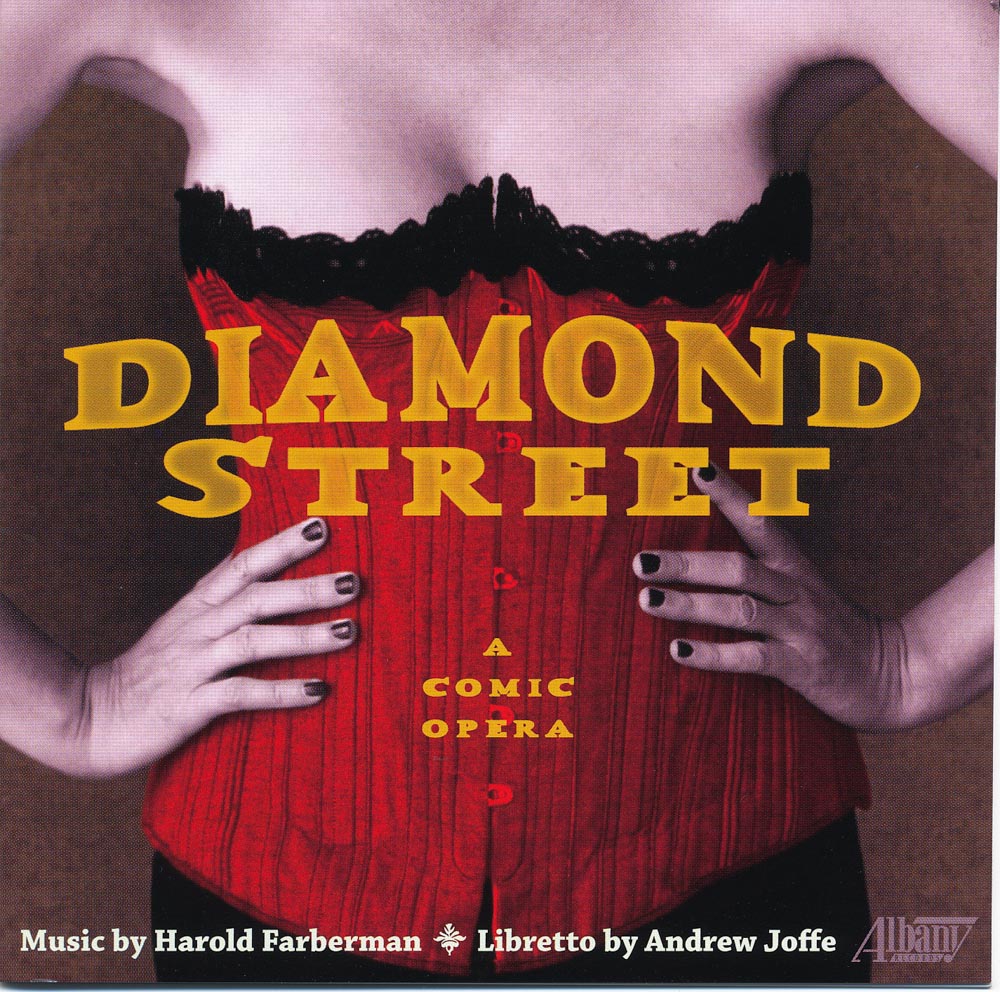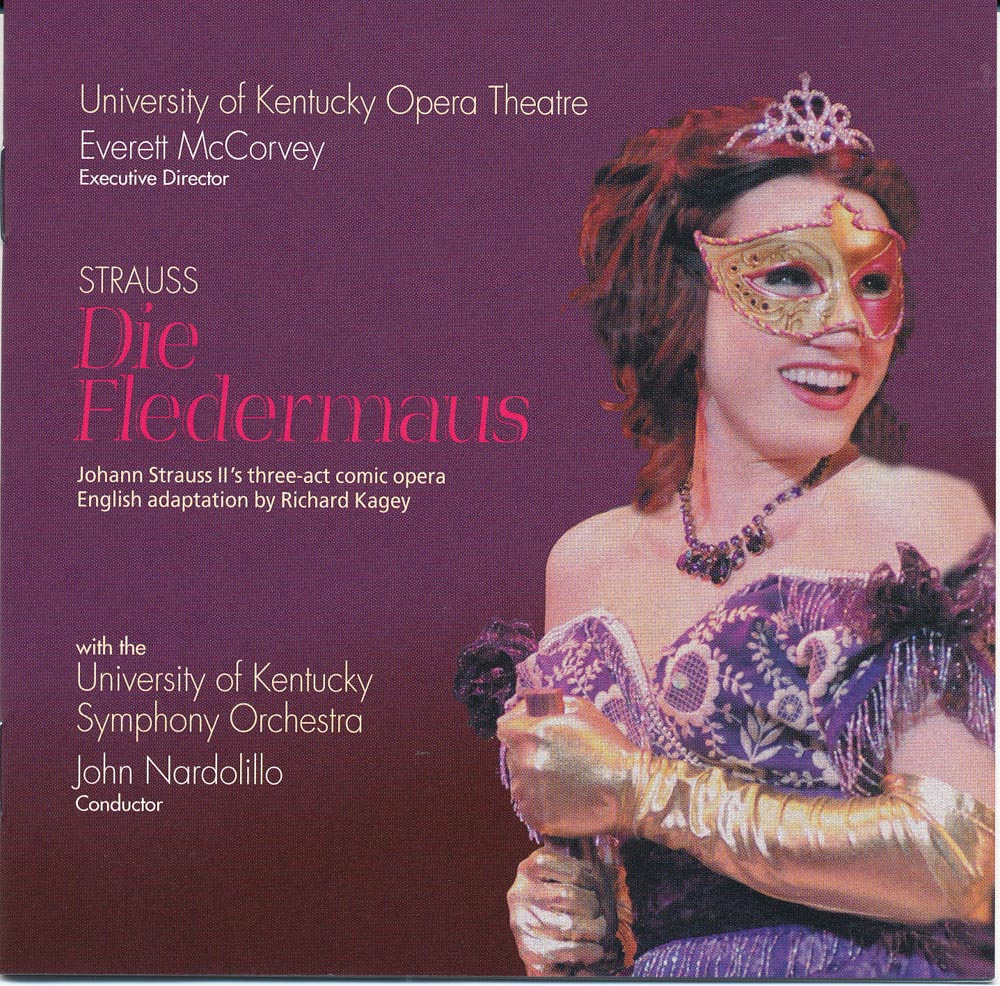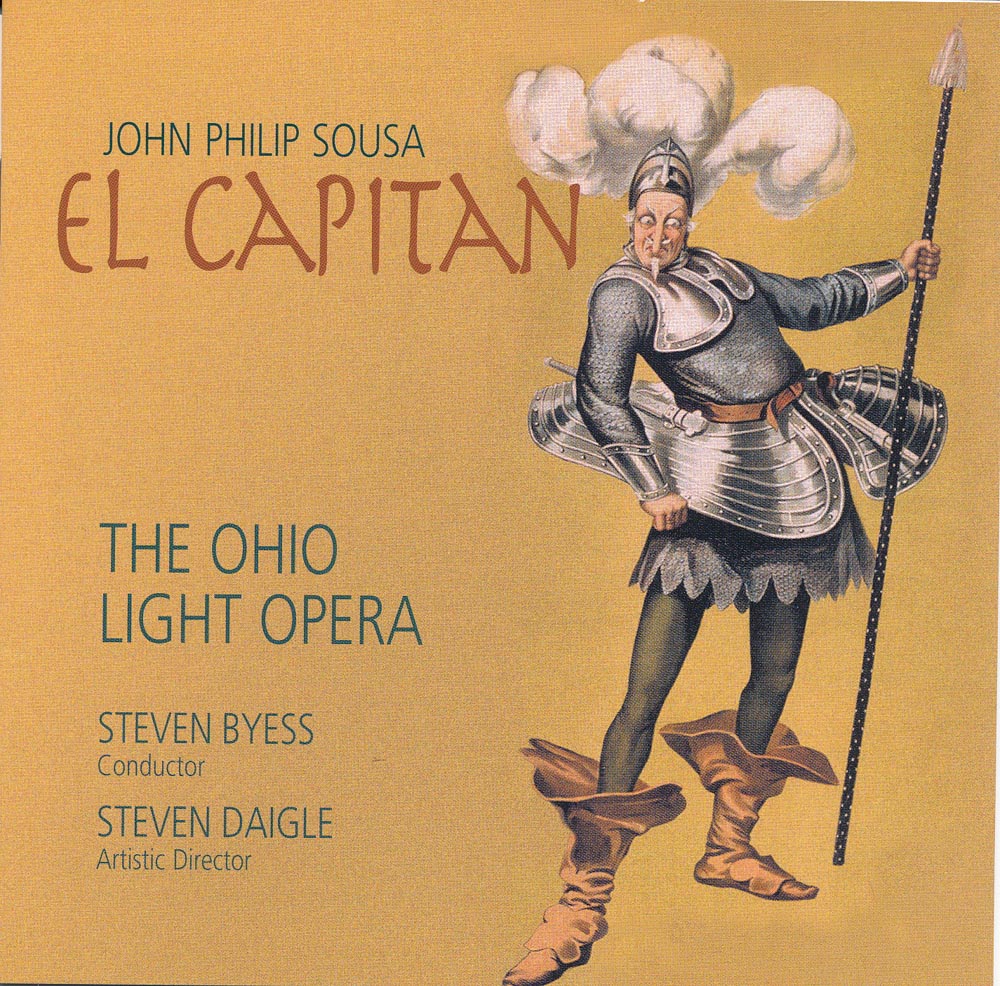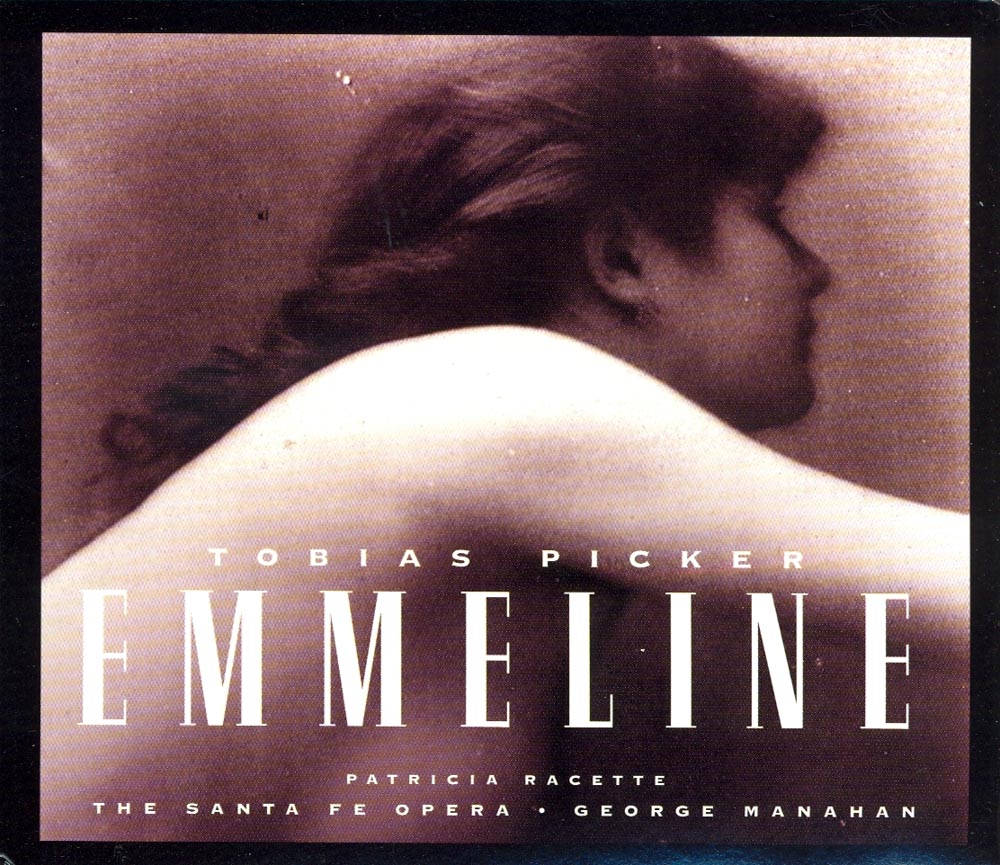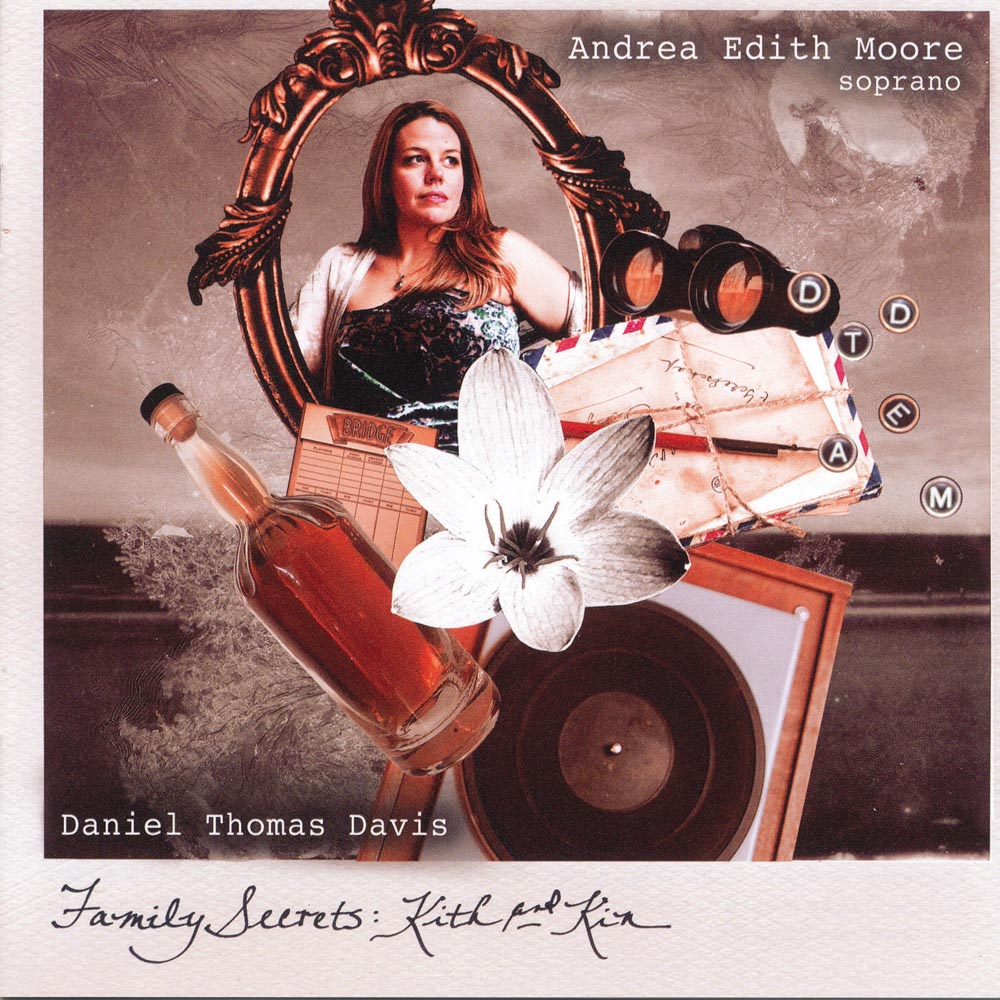Catalog #: TROY1500
Release Date: May 1, 2014OperaContinuing its tradition of commissioning new operas, the Houston Grand Opera gives the world premiere recording of A Coffin in Egypt by Ricky Ian Gordon. Based on Texan playwright Horton Foote's single-character play, A Coffin in Egypt possesses all of the depth and lyricism of grand opera. The libretto by Leonard Foglia and music by Ricky Ian Gordon offer the essence of opera's disarming intimacy. Set in Egypt, Texas, the triple-entendre title is of symbolic significance to believers and Bible scholars, with the final reference to a literal journey taken by Myrtle, the 90-year-old character in the opera. The emotional journey of this opera takes us through our common experiences of joy, pain and the accepting peace of forgiveness. The incomparable Frederica von Stade was lured out of retirement to take on the leading tour-de-force role.
Catalog #: TROY0395
Release Date: June 1, 2000OperaWilliam Mayer was born in New York City. He entered Yale with the notion of becoming a writer and graduated in 1949 with equal affinities for music and language. A tilt toward music became evident as he continued his training at Juilliard and at the Mannes College of Music, studying with Roger Sessions and Felix Salzer, and later with Otto Luening. His magnificent opera A Death in the Family, is based on two contemporary classics: James Agee's novel of the same name, and Tad Mosel's dramatic adaptation, All the Way Home. The novel was awarded the Pulitzer Prize in 1957, two years after the author's death, while Mosel's play itself received the Pulitzer Prize in 1961. Like the book, Mayer's opera had a long gestation period. Completed in 1983, the opera was given its premiere that year by the Minnesota Opera Company, with a libretto also fashioned by the composer. On that occasion, Robert Jacobson of Opera News wrote: "William Mayer's A Death in the Family should immediately become a candidate for regular airings around the country, so beautiful is it, not only in its James Agee story, but in the setting the composer-librettist has provided for it." Shortly thereafter, A Death in the Family was named best musical theater work of the year, Mayer receiving an "Award for Advancement of American Music Theater" from Hal Prince at Kennedy Center. A new production mounted by Opera Theater of Saint Louis was heard nationwide over Public Radio in 1986 with Dawn Upshaw and Jake Gardner as the principals. Yet it was not until 1999, that the opera had its New York premiere. It is this production by the Manhattan School of Music that is recorded here. The Manhattan School productions have been hailed for years, and "are generally at a level where one is rarely reminded that the performers are students," writes Allan Kozinn of The New York Times.
Catalog #: TROY0747-48
Release Date: April 1, 2005OperaLee Hoiby's opera A Month in the Country was originally commissioned and first performed by the New York City Opera in 1964. This performance was recorded live for the 40th anniversary performance of the opera by the Manhattan School of Music Opera Theater. In the New York City of 1964, appearing in the guise of an opera by composer Lee Hoiby and librettist William Ball, Turgenev's A Month in the Country caused concerns for the artistic team. Ball had his first New York success as a director of plays. In 1943, he had directed A Month in the Country and had loved it ever since. In 1959, he had heard Hoiby's first opera, The Scarf, a one acter based on Chekov, at the New York City Opera where Ball was directing Hugo Weisgall's Six Characters and Mozart's Cosi. Ball immediately asked Hoiby to consider collaborating with him on setting the Turgenev. He agreed and the Ford Foundation supported the project and the opera we present here was born.
Catalog #: TROY0541
Release Date: January 1, 2003Opera"...his music is tonal and melodic yet Sleeper avoids high sucrose neo-Romanticism for a darker, more personal and edgy style, bristling with nervous energy," writes the music critic Larry Johnson. Thomas M. Sleeper currently resides in Miami, Florida, where he is Director of Orchestral Activities and Conductor of the University of Miami Orchestra and Opera Theater. "Aceldama," Greek for "field of blood," appears in reference to the field where Cain slew Abel in the first recorded homicide (in fact, fratricide) of the Judeo-Christian tradition. "Aceldama" is sometimes also used to describe the field where Judas committed suicide after his betrayal of Christ. The opera Aceldama is based on the story of Cain and Abel and takes this tragedy through the ages to the Nazi Germany death camps and beyond. Three parts are joined to form one act. Part I takes place in the 1940s, with the final scene projecting surrealistically into the present and the future. Elements are fused from accounts of the Holocaust, Jewish and Christian texts, the Upanishads, the Arthurian legend, Dante's Inferno, and the Faust legend among other sources.
Catalog #: TROY0512
Release Date: June 1, 2002OperaRichard Wilson is the composer of some eighty works in many genres. A Phi Beta Kappa graduate of Harvard, he holds the Mary Conover Mellon Chair in Music at Vassar; he is also Composer-in-Residence with the American Symphony Orchestra. Richard Wilson writes: "It was during a prolonged losing streak of the New York Yankees (we New Yorkers love our Yankees) that, musing on the subject of failure, I decided to write an opera about _thelred the Unready. The libretto I wrote is mainly whimsical. But, it does draw on history, presenting three characters who actually existed. Work on the libretto and then the music of the opera began in the summer of 1992. Excerpts were performed in concert by The American Symphony Chamber Orchestra in 1993 and 1994. The first complete performance is the one captured here." So here we have the first opera ever, inspired by a losing streak of the New York Yankees, or any baseball team as a matter of fact.
Catalog #: TROY1075
Release Date: February 1, 2009OperaEfra'n Amaya was born in Venezuela. He studied composition and piano at the University of Indiana and conducting at Rice University. He is on the faculty at Carnegie Mellon University and founder and conductor of the Point Chamber Orchestra. His children's opera, featured on this recording, was first performed by the Opera Theater of Pittsburgh. The other work, Clepsydra premiered as part of the First Night celebrations in Pittsburgh as a collaborative multimedia performance.
Catalog #: TROY1323-24
Release Date: May 1, 2012OperaThis new American opera by Evan Mack had its genesis in a lecture in Cincinnati, Ohio, where Mack heard the story of the murdered nun, Dorothy Stang. His research led him to the Ohio Province of the Sisters of Notre Dame de Namur where he was given access to Stang's letters from 1969 until the week before her death. In five years time, the opera went from page to stage and won the Boston Metro Opera Main Stage Award. This recording is of the original New York City production. Evan Mack, a noted composer and pianist, has composed five musicals as well as numerous popular songs and classical works. He received his DMA from the University of Cincinnati's College-Conservatory of Music.
Catalog #: TROY1381-82
Release Date: December 1, 2012OperaThe Golden Ticket, a comic opera based on Roald Dahl's Charlie and the Chocolate Factory, was commissioned by American Lyric Theater and Felicity Dahl from American composer Peter Ash and British librettist Donald Sturrock. Dahl's fantastic imagination is vividly brought to life in the witty libretto, and the completely original score ingeniously parodies many traditional operatic conventions to help portray the bigger than life characters that inhabit Wonka's world. The opera premiered in 2010 at Opera Theatre of Saint Louis, in partnership with Ireland's Wexford Festival Opera and New York's American Lyric Theater, where it was embraced by audiences and critics alike: "Donald Sturrock's libretto captures the wit, wizardry and wonder of Dahl's story about five children who gain access to the legendary Willy Wonka's confectionery establishment in a contest by finding golden tickets in their chocolates. The largely expository first act introduces the lucky children, who instantly become media darlings, but the fun really begins and the dramatic tempo accelerates in Act 2 when they go through trials not unlike reality television or perhaps as children in the audience may someday recognize The Magic Flute, overseen by Wonka with Sarastro-like benevolence and fearsomeness . Though not widely known, the American composer Ash has produced a fun-filled score with a zippy, contemporary ambience that makes room for a tune or two you can remember and deft allusions to past operas " (London Financial Times) This recording is taken from a live performance of The Golden Ticket at The Atlanta Opera in March 2012, conducted by composer Peter Ash, with a stellar cast including Daniel Okulitch in the role of Willy Wonka and Benjamin P. Wenzelberg as Charlie. The Atlanta Journal Constitution declared, "There may come a day when music teachers everywhere will use characters from The Golden Ticket to teach lessons about voices in opera For parents and teachers who want to introduce young people to the opera, The Golden Ticket is a good start." But, The Golden Ticket is not just for children it's an opera for everyone who is still young at heart!
Catalog #: TROY0562-63
Release Date: January 1, 2003OperaThe Ohio Light Opera production of Autumn Maneuvers in the summer of 2002, was the first time the work was produced in its entirety in the United States. In 1912, the Viennese music critic Richard Specht wrote of the premiere of Kalman's opera Der Zigeunerprimas: "Kalman's music is fresh and pleasant, full of strength in its natural melodic invention and of wholesome maturity. While others grope and experiment, he stands in the rich soil of folk music and hits the mark every time." Autumn Maneuvers was written three years before Der Zigeunerprimas, but was already rich in folk elements, specifically those of Kalman's native Hungary. These are not the same fundamental folk elements used collected by Bartok and Kodaly with whom he was a fellow student at the Budapest Academy of Music. Rather, the melodic materials used by Kalman are polished and elegant, similar to those of another fellow Hungarian Franz Liszt. Kalman also shows his great skills as an orchestrator in Autumn Maneuvers. Similarities to Tchaikovsky, who was a model for the composer, abound in the score. It is clear that the 26 year-old Kalman had found a formula for success in the excellence of Autumn Maneuvers Ð essentially his first major work for the stage. This is Autumn Maneuvers' first complete CD recording.
Catalog #: TROY1226-27
Release Date: October 1, 2010OperaJorge Martín's dramatic two-act opera, based on the writings of Cuban dissident and poet Reinaldo Arenas is giving its world premiere recording. In creating an opera from the memoir of Reinaldo Arenas, composer Jorge Martín with the help of Dolores Koch, took every step to insure accuracy, calling upon Cuban émigrés for advice, particularly for the prison and interrogation scenes. Before Night Falls transcends a specific time and place, however, capturing universal themes and Martín has woven these themes into a vibrant music drama.
Catalog #: TROY0993-94
Release Date: December 1, 2007OperaFollowing the success of Orpheus in the Underworld, none other than Rossini dubbed Offenbach "the Mozart of the Champs-Elysees." After another international triumph, La Belle Helene, 1866 saw the premiere of Bluebeard. Despite being based on a grisly legend, Offenbach produced a ribald comedy tinged with the dark, gothic passions later found in The Tales of Hoffmann. Granted, the buffoonery is mixed with some real terror but all comes out well in the end! This recording marks the Ohio Light Opera's first performance of this work since 1987, in a very welcome revival featuring a witty English translation by Richard Traubner and all the high spirits and enthusiasm you expect from this marvelous company.
Catalog #: TROY0469-71
Release Date: February 1, 2002OperaFrank Lewin was born in Breslau, Germany, but came to the United States in 1940. He studied composition with among others Hans David and Roy Harris before attending Yale University where his teachers were Richard Donovan and Paul Hindemith. The composer himself was on the faculty of the Yale School of Music from 1971 to 1992, teaching composition for film. During this period he also taught the course Music in Modern Media at the Columbia University School of the Arts. He has been active as an editor and engineer of recorded music. In October 1950, Frank Lewin - then a composition student at Yale - saw John Steinbeck's play Burning Bright in New Haven's Schubert Theater. The play was on its way to Broadway, where it found little favor. Lewin, however, was deeply impressed by the story. It seemed ideally suited for an opera. He never forgot Burning Bright. In 1967, he took out an option to turn the play into an opera. During the next ten years, Lewin did research for the opera and worked on a libretto. In 1977, he began composing the music; he completed the score in January 1989. The opera had its premiere in Woolsey Hall in November, 1993 and was warmly received by audiences and critics alike. In July 2000, the Opera Festival of New Jersey presented two performances in Princeton's McCarter Theater. Once again this wonderful opera was well received.
Catalog #: TROY1149-50
Release Date: January 1, 2010OperaSo, what is Captain Jinks of the Horse Marines? Is it an opera? Yes, it is, but more specifically it is "A Romantic Comedy in Music." Based on the play by Clyde Fitch, Sheldon Harnick wrote the libretto for this opera that was first performed in 1975 by the Kansas City Lyric Theatre. Born in 1921, Jack Beeson became interested in opera after listening to the Metropolitan Opera broadcasts and as a teenager wrote a five-act libretto. His interest in opera revived while teaching at Columbia University and he has gone on to write 11 operas as well as works for orchestra, concert band, vocal and choral groups and solo and chamber music. He is the MacDowell Professor Emeritus of Music at Columbia. This recording, originally issued on Columbia and long out of print, brings this delightful opera back to the catalog.
Catalog #: TROY1721-22
Release Date: May 1, 2018OperaCendrillon opened at the Paris Opéra-Comique on February 22, 1810, and brought unprecedented success to composer Nicolo Isouard and his librettist Charles-Guillaume Étienne. However, beginning in 1817 Rossini's La Cenerentola superceded Isouard's opera and Cendrillon fell into obscurity.The head of Opera Music Studies at Manhattan, William Tracy along with Jennifer Gliere, conductor Pierre Vallet and director Dona D. Vaughn have prepared an entirely new edition and production for this recording. In fact, orchestral parts could not be located, nor the original score. Working from the original manuscript and the first printed edition, Mr. Tracy and Ms. Gliere created the present edition heard here. You can now hear Isouard's brilliant "perfect little jewel box" opera, Cendrillon, last performed in the United States on July 13, 1827 at the Park Theater by a French company from New Orleans.
Catalog #: TROY0758-59
Release Date: August 1, 2005OperaCold Sassy Tree, Carlisle Floyd's first crack at writing a comic opera, is taken from Olive Ann Burns' delightful exploration of youthful old age and set in an America affectionately drawn. As always, he has written his own libretto, drawing upon his own theatrical instincts that have been nourished simultaneously with his music. Like five of the six Floyd operas that preceded it, Cold Sassy Tree is about American attitudes, characters - and the joy of language. Like all the work that preceded it, the music is about expressive clarity, lyricism and the value of song. According to Daniel Webster, "Floyd writes popular opera. Not pandering opera, but theater pieces strapped tight with technical virtuosity, yet sounding innocent and natural..." Carlisle Floyd comments that "In dramatizing the book for the stage, there were two undergirding themes in particular from the novel that I wanted to deal with. First was the astonishing capacity human beings possess for change and growth, and the second was the healing and transforming power of love. When the book first appeared one reviewer aptly described Ms. Burns' novel as the story of an old man growing young and a young man growing up and the woman who, without intending to, becomes the catalyst for both. This general description holds true, I hope, for the opera as well." This recording represents a major addition to the opera discography.
Catalog #: TROY1306
Release Date: September 1, 2011OperaConfession, Raphaël Lucas' award-winning opera, libretto by Jacque Trussel and Margaret Vignola, was created as a "prequel" to Puccini's beloved Suor Angelica. The evocative one-act work came about as Jacque Trussel, stage director for Purchase Opera, began to muse on the possible circumstances behind Suor Angelica's becoming a nun. He realized there was a story waiting to be told and came up with the essence of the libretto that was to become Confession. The music was written by the young French composer Raphaël Lucas and was awarded the National Opera Association Prize as best contemporary opera of 2010-12 and will be staged at their 2012 convention. This is a world premiere recording.
Catalog #: TROY1618-19
Release Date: March 1, 2016OperaConrad Susa's three-act opera with libretto by Philip Littell, is based on the scandalous 18th century novel by Pierre Chodelos de Laclos, a tale of decadence and revenge told entirely in letters. The plot of The Dangerous Liaisons revolves around the vengeful widow Marquise de Merteuil, who has managed to keep her reputation despite her many amorous affairs, and her sometime lover the Vicomte de Valmont, a well-born rake who does her bidding. The ripple effect of their schemes and amorous exploits results in the deaths of both Valmont and the woman he truly loves, the saintly Madame de Tourvel. Commissioned by the San Francisco Opera, Susa's massive score was reduced by Bob Schuneman in 2008 and it is this version that is heard on the recording. The Dangerous Liaisons was recorded live at the acclaimed 2015 Manhattan School of Music Opera Theater production.
Catalog #: TROY1846
Release Date: December 1, 2020OperaConstellations, with music by Efraín Amaya and libretto by Susana Amundarain, is a chamber opera inspired by the life and work of Spanish artist Joan Miró. American composer and conductor Efraín Amaya was born in Venezuela, where he began his musical studies. A graduate of Indiana University and Rice University, Amaya has served on the faculty at Carnegie Mellon where he conducted the Carnegie Mellon Contemporary Ensemble. His compositions have been performed around the world at international festivals. He is currently on the faculty at Minot State University and conducts the Minot Symphony Orchestra. Recordings of his music appear on the Albany Records and Oberlin Music Record labels.
Catalog #: TROY1848
Release Date: January 1, 2021OperaThis recording is a revised version of Cooperstown, originally released in 2015 and was named record of the month by Stereophile. The libretto is based on an essay by A. Bartlett Giamatti titled The Green Fields of the Mind. Composer Sasha Matson says that "Baseball has its own specific historical musical attributes. One of them is the sound of the stadium organ. That sound led me quickly to scoring the music for a Miles jazz quintet. Matson added a vocal cast of five for this one act, nine scene jazz opera. A graduate of the San Francisco Conservatory and UCLA, Matson has scored music for feature films and other multi-media in addition to his own compositional work.
Catalog #: TROY1299
Release Date: October 1, 2011OperaCruzar La Cara de la Luna/To Cross the Face of the Moon is the world's first opera composed for mariachi. Exploring the fusion of opera and mariachi has taken both art forms in new directions. Commissioned in celebration of the Mexican anniversaries of independence and revolution, Cruzar brought together composer José "Pepe" Martinez, the music director of the storied Mariachi Vargas de Tecalitlán, and eminent Broadway stage director and writer Leonard Foglia. Together they have created an emotional and compelling work that remains true to its Mariachi culture and tells a story that resonates with all. This is a recording of the world premiere performance, which brought this glorious new piece of music theater to life with unforgettable virtuosity, energy and passion.
Catalog #: TROY1513-14
Release Date: August 1, 2014OperaThis world premiere recording of With Blood, With Ink, a dramatic opera with music by Daniel Crozier and libretto by Peter Krask, was made in 2014 at the acclaimed Fort Worth Opera Festival. The opera is based on the extraordinary life of the 17th century Mexican nun, Juana Inés de la Cruz, beloved poet, intellectual, and heroic champion of women's freedom. Her choice of life in a convent over marriage protected her brilliant creative life until she was betrayed by ecclesiastical authorities. Celebrated as the "Phoenix of America," Sor Juana is the first great literary figure in the Americas. Influenced by the operas of Verdi and Britten, With Blood, With Ink, explores how an individual destiny tragically collides with the implacable forces of history and community.
Catalog #: TROY1315-16
Release Date: November 1, 2011OperaThe creation of Darkling, an opera with music by Stefan Weisman and libretto by Anna Rabinowitz, is a story of transformations. It is a story that maps the trajectory of bits of memorabilia found in a shoebox to publication of a book-length poem to production of a multi-media experimental opera performed in fully staged and concert versions to its current incarnation as a CD. The faceless, mainly nameless voices of Darkling emerge from a world that is lost to us: that of Eastern European Jewry destroyed in the Holocaust. Darkling spans the period between the two World Wars, interweaving the phenomenal and emotional lives of its characters with the catastrophic events of history. Darkling shows what is possible for music and poetry now and in the years to come.
Catalog #: TROY0849-50
Release Date: June 1, 2006OperaCommissioned by the College Band Director’s National Association, Bandanna received its world premiere staged production in March, 1999 by the University of Texas Opera Theater, Michael Haithcock, conductor. The European concert premiere was presented in Warrington, England by the North Cheshire Concert Band and Manchester Chamber Choir, Mark Heron, conductor in April 2006.
Catalog #: TROY0585-86
Release Date: June 1, 2003OperaDas Dreimaderlhaus was an early example, and one of the most successful, of the operetta sub genre called the pasticcio. The Italian word (like operetta itself) literally means something pasted together from existing material, in this case from music by a single composer. Weiner Blut, arranged from existing Johann Strauss II selections in 1899, with the approval of the composer, was another early Viennese pasticcio that still holds the stage over a century later. Das Dreimaderlhaus however, takes the hommage a step further: the libretto deals with the supposed life of the composer himself. The original idea was to transform into an opera the popular romantic 1912 novel Schwannerl (Toadstool) by Rudolph Martsch. Heinrich Berte, an Hungarian-born, Vienna-based composer who had several operettas produced in Vienna and elsewhere without much success, had the notion to dramatize the Schubert story that the novelist Martsch had already embroidered well beyond the actual facts. Berte composed a new score around one original Schubert song used prominently, the "Ungeduld" ("Impatient") Lied. Wilhelm Karczag, then managing the Raimundtheater, was presented with a draft version. He wanted more Schubert and less Berte. The libretto was then modified to incorporate a selection of suitable all-Schubert songs and orchestral pieces, rearranged for theatrical use by a reluctant, but skillful Berte. The music Berte chose may have been somewhat familiar, but not entirely so. For every familiar number, there were reworkings of then-comparatively obscure themes from Schubert's piano or chamber works, or his Rosamunde incidental music. The libretto that accommodated these enchanting pieces may have stretched the historical facts, but it managed to incorporate a considerable number of real people alongside the composer to give some appearance of historical reality. The first night, January 15, 1916, was a triumph; this proved exactly the show the Viennese wanted to escape to in the wartime period. Not only could the Vienna public hear their beloved Schubert, they could see him in a quaint courtyard, a dainty salon, or a Hierzing square, all in the cozy Biedermeier era.
Catalog #: TROY0460
Release Date: August 1, 2001OperaHere we have the first recording of Handel's final Italian opera with a period instrument orchestra, chorus and a superb American cast. Deidamia was Handel's last opera. He began work on it in October, 1740, at the same time he was completing its companion work, Imeneo, which he had begun two years earlier. On November 8, Handel presented his London winter season - with some new works, some revivals - and for this purpose had engaged the Theatre Royal at Lincoln's Inn Fields. Opening night saw a semi-staged version of the serenata Il Parnasso in festa; later in the month came the premiere of Imeneo. Despite a superb score and fine cast, the production was a failure and was offered only once again in early December. The fact is that opera - Italian opera - was passe in London by this time. The public had turned to other musical delights - stage works in English of a more frivolous nature than Handel's offerings. For serious entertainment, the sacred oratorio, also given in the native tongue, was becoming increasingly popular. Thus, the true merits of Handel's last two operas were ignored at their premieres: Imeneo and Deidamia really never had a chance. For the libretto, Handel turned to his long time collaborator Paolo Antonio Rolli, who devised a "dramatic skeleton" for the composer of the Ulysseys-Achilles-Deidamia legend. As entertaining as the plot was, the new opera met the same fate as Imeneo. So indifferent was the public that it was only presented twice more, January 17, and February 10, 1741. Thereafter, Handel substituted more sure-fire oratorios. Handel was discouraged by the failure of his new stage works. Whether he would have attempted a further London season or ever written another Italian opera was decided by the extraordinary success in Dublin later that same year of a new English-language work he presented to the world. Messiah would change the course of his life. Its reception gave Handel nearly another two decades of celebrity and began a particularly fertile period of composition. Deidamia went by the wayside completely until this wonderful new recording with this first class American group of singers.
Catalog #: TROY0510
Release Date: April 1, 2002OperaJames Stuart, who prepared the new English version of the libretto for this operetta writes: "after the success of the Ohio Light Opera's production of The Bayadere in 1998, Yvonne Kàlmàn, the composer's daughter, and I talked of the possibility of resurrecting Kaiserin Josephine, her father's last work before emigrating to America in 1936 and one that had never been performed in the United States. I was excited about the venture. What beautiful music it was: I certainly could understand Yvonne's desire to have it produced. But when the vocal score and libretto arrived, I had second thoughts about the feasibility of staging so elaborate a work. Nevertheless, I was determined to have a Kalman operetta revival, but which work? When I turned to Der Zigeunerprimas, which one might translate as "The Gypsy Virtuoso," I became committed to it: voluptuously sweeping melodies, lively gypsy tunes, languid waltzes, comic songs and dances - all masterfully orchestrated. I began to translate the German libretto and at the same time to sketch out staging notes. Thus resulted the wonderful production which we presented at our 2001 summer festival and have here recorded for your enjoyment."
Catalog #: TROY1232
Release Date: January 1, 2011OperaAs the world is turning from the 19th to the 20th century, Hudson, New York, on the Hudson River, in the Hudson Valley, was a little town with a big red light district centered on Diamond Street. Harold Farberman has written a comic opera (libretto by Andrew Joffe) that involves politicians, a heroine forced to work in the red light district and a hero, who rescues her. Harold Farberman is a distinguished composer, conductor and pedagogue. He has conducted many of the world's leading orchestras and his accomplishments as a recording artist have been widely recognized. A prolific composer, he counts orchestral works, chamber music, concertos, ballet music, film scores, song cycles and operas among his compositions. He is founder and director of the Conductors Institute.
Catalog #: TROY1201-02
Release Date: July 1, 2010OperaJohann Strauss II's delicious 1874 operetta, set in turn-of-the-century Vienna, is performed in an English adaptation by Richard Kagey by a stellar cast of young singers who are sure to make their mark. The story is fun and familiar but it is the score that really makes the work timeless.
Catalog #: TROY1858
Release Date: March 1, 2021OperaSusan Kander and Roberta Gumbel's dwb (driving while black) tackles what it means to be a parent of a black child who starts driving. In its swift 45 minutes, the listener spends 16 years with a black mother, feeling her growing fear as her black son moves towards driving age. Librettist and soprano Roberta Gumbel has been called "silver-voiced" by the New York Times. She has appeared with opera companies in Kansas City, Houston, Indianapolis, Detroit, Philadelphia, and Memphis, and toured the United States and Europe in companies of Porgy and Bess, including the renowned Houston Grand Opera production. Composer Susan Kander's music has been heard across the U.S. and in Europe, China, Russia, Australia, and South Africa and she has received commissions from a variety of ensembles including the Minnesota Opera Theater, Opera Theater of St. Louis, the Columbus Opera, and National Symphony Orchestra, among many others. Her music appears on the MSR, Navona, and Loose Can record labels. dwb (driving while black) enjoyed a video premiere on October 23, 2020 as a joint production of the Baruch Performing Arts Center and Opera Omaha.
Catalog #: TROY1236-37
Release Date: November 1, 2010OperaThe lure of the operetta stage proved as irresistible to America's "March King," John Philip Sousa, as it had a decade earlier to Vienna's "Waltz King," Johann Strauss. Sousa played under the baton of Jacques Offenbach as a teenaged violinist and was aware of the unprecedented success of Gilbert and Sullivan's H.M.S. Pinafore on Broadway. El Capitan can lay claim to be the most enduring American comic opera of the 19th century. It was premiered in Boston in 1896, transferred to Broadway a week later and for the next four years played continuously across the U.S. and Canada and even had a five month run in London. This recording, with complete music and dialogue, was recorded at the 2010 Ohio Light Opera Festival.
Catalog #: TROY0284-85
Release Date: June 1, 1998OperaTobias Picker was born in New York City and studied at Juilliard, the Manhattan School of Music and Princeton University. When he was eighteen, he was pianist for the Martha Graham Dance Company. Recently, Picker has been commissioned by the Metropolitan Opera to compose an opera that will have its premiere in the fall of 2002. He has also been commissioned by the BBC to compose a cello concerto to be premiered in the summer of 1999. He is currently completing Fantastic Mr. Fox, an opera based on Roald Dahl's classic story which was commissioned for the Los Angeles Opera and will premiere on December 9, 1998. For its 40th anniversary season in 1996, the Santa Fe Opera gave the world premiere performances of Picker's first opera Emmeline. The opera is inspired by Judith Rossner's novel about the true life story of Emmeline Mosher, a single mother forced to give up her baby son who unknowingly marries him twenty years later. Emmeline, which played to sold out houses, standing ovations and international critical acclaim, was nationally broadcast on PBS Great Performances in April 1997 and receives its New York premiere on March 31 at City Opera. Here are some of the comments the critics made about the Santa Fe performances of Emmeline. Heidi Waleson in the Wall Street Journal said: "This summer the Santa Fe Opera struck gold with the American premiere of Emmeline." Jamie James in The Times, London said: "Picker has written a sensational, satisfying first opera...Emmeline, in its world premiere at the Santa Fe Opera, is one of the most successful American operas in years." Hugh Canning in The Sunday Times, London said: "The unquestionable hit of the festival was Picker's Emmeline...accessible, exquisitely crafted, and it always serves the drama as both accompaniment and commentary. And what a drama!...A hugely enjoyable occasion that I would gladly relive." John J. O'Conner in The New York Times said: "Mr. Picker's score is ominously taut, punctuated with moving solos and duets...The production is stunningly spare. The singers are never less than impressive." It goes without saying that Albany Records feels privileged to release this magnificent work by one of America's finest composers. The added presence of Patricia Racette who has been winning rave reviews lately is an added bonus. The sound on the recording is superb because it has been especially remixed for audio from the original masters just for this CD release.
Catalog #: TROY1841
Release Date: November 1, 2020OperaComposer Daniel Thomas Davis says that Family Secrets: Kith and Kin emerged as a series of loosely related portraits, using poetry and prose by seven of the finest writers currently working in and around the Southern voices of American literature. This musical drama is a hybrid form -- an opera on top of chamber music, or a song cycle inside a monodrama -- perhaps best described as a chamber opera. Davis' music has been performed by the Detroit Symphony, Momenta Quartet, London Sinfonietta, Charlotte Symphony, and Anonymous 4, among many others. He is a graduate of the University of Michigan, Royal Academy of Music, Peabody Conservatory, and Johns Hopkins University and is on the faculty at SUNY Binghamton. Soprano Andrea Moore is a prizewinner in the Metropolitan Opera National Council Auditions and has received the Yale School of Music Alumni Award. Her commitment to voices from her native North Carolina has led her to produce, premiere, and develop Family Secrets: Kith and Kin with the North Carolina Opera.
Catalog

©2024 Albany Records. All rights reserved. | Privacy Policy | Website by PARMA Creative.
